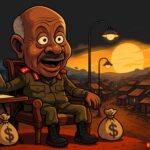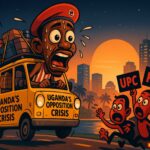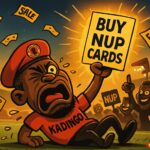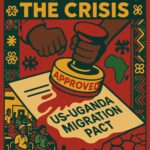A Critical Analysis of Uganda’s IPOD Summit 2025: Theatre, Power, and the Path to Authentic Change
The recent Inter-Party Organisation for Dialogue (IPOD) summit, held at the Kololo Ceremonial Grounds in Kampala, presented a carefully curated spectacle of political unity. Under the theme “Together for a peaceful and sustainable Uganda,” President Yoweri Museveni’s National Resistance Movement (NRM) ceremonially handed over the organisation’s leadership to Norbert Mao’s Democratic Party (DP), with other party presidents—Jimmy Akena of the UPC, Patrick Amuriat of the FDC, Asuman Basalirwa of JEEMA, and Saddam Gayira of the PPP—in attendance.
This article offers a comprehensive, radical critique that looks beyond the handshakes and photo opportunities to deconstruct the summit’s deeper function. We argue that such events are not forums for genuine change, but are instead a form of state-sanctioned theatre designed to legitimise the existing power structure by incorporating a managed opposition. We will explore how mechanisms like state funding, the illusion of rotational leadership, and the language of paternalism (“the leader as a doctor”) are used to engineer dependency and stifle authentic dissent.
Ultimately, this analysis contends that the path to a truly peaceful and sustainable Uganda will not be found in air-conditioned summits. It lies in recognising that real power is built from the ground up—through community organising, mutual aid, direct action, and the courageous work of decentralising power to the villages and neighbourhoods where people are already taking control of their own lives, water, security, and futures. This is an exploration of the illusion of dialogue and the practical realities of building freedom beyond the state’s shadow.
The State’s Ballroom: A Dance of Illusion in Kampala
In the opulent halls of Kampala’s Kololo Ceremonial Grounds, a carefully choreographed performance unfolded. Presidents and party leaders, clad in their finest, exchanged handshakes and spoke of unity, dialogue, and peace. The 2025 IPOD Summit, with its theme “Together for a peaceful and sustainable Uganda,” was presented as a beacon of political maturity. But from the dusty streets of Kisekka Market to the struggling farms of Karamoja, a different reality pulses. This article peels back the velvet curtain on this state-managed spectacle, arguing that true change and genuine freedom will never be gifted from the top down by those who profit from the current order. It is a call to look beyond the politicians’ ballroom and recognise the power we already hold in our communities.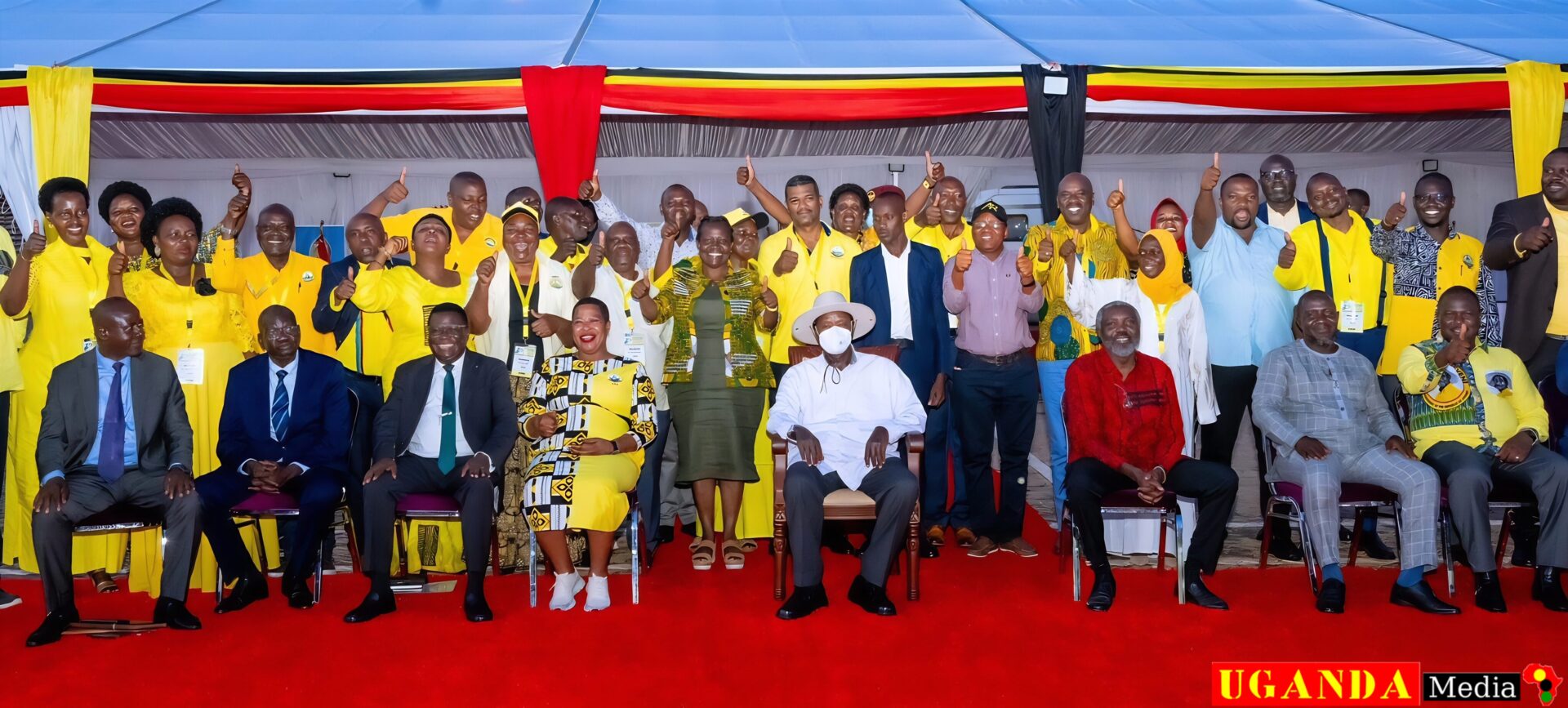
Twenty Key Points: The Illusion and The Alternative
The Stage-Managed Spectacle: Unveiling the IPOD Theatre
In the heart of Kampala, beneath the whirring fans of a lavish hall, a performance unfolds. The actors—dressed in fine suits and colourful gomesi—take their places on a stage set for political dialogue. They speak of unity, peace, and the nation’s future to an audience of delegates and diplomats. This is the IPOD summit, presented as the pinnacle of Uganda’s political discourse. Yet, to the keen observer, it bears less resemblance to a genuine meeting of minds and more to a carefully rehearsed play, where the script is written by the state and the outcome is predetermined. As the old adage goes, “A dog that is going to bite does not bark in the open.” The real work of maintaining power is not done in the glare of these lights; this show is the bark, designed to distract from the silent, tightening grip of control.
This spectacle is what we can accurately call The Theatre of Dialogue. It is not a forum for genuine change, but a state-sanctioned mechanism designed with a singular, cynical purpose: to legitimise the existing power structure by creating the illusion of inclusive debate while neutralising any true threat to the status quo.
Here is how this theatre functions comprehensively within the Ugandan context:
1. The Illusion of Inclusion and the Reality of Managed Opposition:
The state understands that outright suppression of all dissent is inefficient and draws negative international attention. A more sophisticated strategy is to selectively invite certain opposition figures into a sanctioned space. By giving them a microphone and a seat at a grand table, the state performs an act of “inclusion.” However, this inclusion is strictly conditional. The participants are those who have, willingly or unwillingly, accepted the fundamental rules of the game as dictated by the ruling power. Their role is not to challenge the core architecture of the system, but to play the part of a “loyal opposition”—one that critiques within strictly defined and permissible boundaries. This process launders the state’s image, presenting it as tolerant and democratic, while simultaneously drawing the teeth of the opposition by coaxing them into a controlled environment.2. The Stage, the Script, and the Director:
Every element of the summit is controlled, mirroring the state’s control over the political landscape.The Stage (The Venue): Kololo is not a neutral ground. It is a symbol of state power and prestige. By hosting the event here, the state frames the dialogue on its own terms, reinforcing the hierarchy and reminding everyone who is the true host—and by extension, the boss.
The Script (The Agenda): The topics of discussion are often safe, consensus-driven issues like “peace” and “funding.” They deliberately avoid the root causes of conflict: the immense concentration of power, the systemic use of violence by security agencies, the endemic corruption, and the economic exclusion that defines daily life for millions. The script forbows any challenge to the state’s ultimate authority.
The Director (The State): The ruling party, through its chairman, ultimately sets the tone and closes the show. The handover of a flag is a powerful piece of theatre, symbolising a rotational concession that changes nothing of substance. The director always has the final cut.
3. The Function of Legitimisation:
This theatre is performed for multiple audiences:For the International Community: It provides evidence of “political dialogue” and “multi-party democracy,” helping to secure legitimacy and continued aid. Diplomats can report back that they witnessed the government engaging with its opponents.
For the Urban Elites and Middle Class: It creates a narrative of political stability and progress, reassuring those with a stake in the current system that things are moving in the right direction, however slowly.
For the General Population: The media coverage of handshakes and warm words is designed to demoralise and pacify. It suggests that the recognised leaders of the opposition are now inside, talking, and that therefore, the time for protest and grassroots mobilisation is over. The message is: “Your betters are handling it; go back to your lives.”
4. The Silenced Voices and the Empty Chairs:
The most telling feature of this theatre is not who is in the room, but who is absent. The summit conveniently ignores the countless Ugandans who reject the entire state-managed political circus:The Peasant Farmers: Those whose land is threatened by state-backed acquisitions have no voice here.
The Market Vendors: Harassed by authorities and struggling under unfair taxation, their daily resistance is invisible on this stage.
The Unemployed Youth: Their frustration and alienation are a ticking bomb that no staged dialogue can defuse.
The Community Activists: Those organising against environmental degradation or for workers’ rights outside of formal party structures are not invited.
By excluding these radical voices and the most prominent critics of the regime, the state ensures the dialogue remains a conversation between elites who, despite their performative disagreements, ultimately share an interest in maintaining the current structure of society, as it privileges their position.
 In conclusion, the IPOD summit is a masterclass in political deception. It is a bark meant to reassure, not a bite that challenges. It is designed to manufacture consent for the ruling system, not to dismantle or truly reform it. Genuine change—the kind that redistributes power from the state to the people, that prioritises community justice over court rulings for the powerful, and that builds an economy from the bottom up—will never be authored in such a venue. That kind of change has always, and will always, begin in the streets, in the villages, and in the hearts of people who see through the theatre and decide to write their own script, based on direct action, mutual aid, and a refusal to be governed by illusions.
In conclusion, the IPOD summit is a masterclass in political deception. It is a bark meant to reassure, not a bite that challenges. It is designed to manufacture consent for the ruling system, not to dismantle or truly reform it. Genuine change—the kind that redistributes power from the state to the people, that prioritises community justice over court rulings for the powerful, and that builds an economy from the bottom up—will never be authored in such a venue. That kind of change has always, and will always, begin in the streets, in the villages, and in the hearts of people who see through the theatre and decide to write their own script, based on direct action, mutual aid, and a refusal to be governed by illusions.The Golden Leash: How State Funding Enslaves the Opposition
In the intricate dance of power, the most effective chains are not made of iron; they are woven from banknotes. At the recent IPOD summit, the very first consensus reached was a telling one: a unanimous agreement that government funding for political parties must continue. This decision, framed as a practical necessity for sustaining multi-party democracy, is, in fact, a masterstroke of control. It represents the state’s golden leash, expertly fastened around the neck of the opposition to ensure it never strays too far. As the adage goes, “He who pays the piper calls the tune.” In this grand orchestra of Ugandan politics, the state is not just the conductor; it owns every instrument and writes every score, ensuring that even the loudest dissent plays a melody that ultimately reinforces its own authority.
This mechanism of Funding the Illusion is a sophisticated tool of pacification, and here is how it functions comprehensively:
1. The Engineering of Dependency:
The state, which controls the national treasury, positions itself as the benevolent patron of political activity. By offering funding, it creates a relationship of profound dependency. Opposition parties, often starved of resources due to the immense financial advantage of the ruling party and its connected business interests, are presented with a devil’s bargain: remain perpetually outgunned and grassroots, or accept the state’s money and become a “legitimate” player. This choice is no choice at all. It forces them to become clients of the very system they purport to challenge. Their operational survival—the ability to rent offices, print posters, and pay organisers—becomes contingent on the goodwill of their opponent. This immediately compromises their autonomy and blunts their radical edge.2. The Bureaucratisation of Resistance:
Once a party accepts state funding, it must transform to manage it. It is no longer a nimble movement of protest and grassroots mobilisation; it becomes an institution. Its energy shifts from organising street action to ensuring it complies with the state’s accounting procedures, filling out forms, and meeting the bureaucratic criteria to qualify for the next tranche of funds. This process effectively domesticates dissent. The fiery activist slowly morphs into a cautious accountant, more concerned with auditing receipts than auditing power. The struggle is no longer against the state but for a larger slice of the state’s budget, making the party a competitor within the system, not a challenger of it.3. Defining the Boundaries of Legitimate Dissent:
This funding is never without strings. It is a tool to separate the “good” opposition from the “bad.” The state, either through formal legislation or informal pressure, can set the terms. To receive funding, a party might be required to:Recognise and uphold the current constitution without question, thereby neutering any challenge to its foundational clauses that entrench power.
Condemn “illegitimate” forms of protest, such as popular strikes or civil disobedience, effectively forcing the opposition to police its own supporters and side with the state against radical action from the streets.
Participate only in state-sanctioned activities like IPOD, lending credibility to these theatrical exercises while marginalising any independent forums for people-powered assembly.
By accepting the money, the opposition implicitly accepts these rules. Their critique is thus limited to superficial issues—the implementation of policies, not the policies themselves; the conduct of an official, not the office that holds the power. They are permitted to bark, but the leash ensures they cannot bite.
4. Creating a Professional Political Class:
State funding fosters the development of a professional political elite whose interests diverge from those of the common person. For the party leaders and officials, politics becomes a career. Their personal livelihood is tied to the continued flow of state funds. This creates a vested interest in maintaining the system that pays them, even if that system is flawed. Their struggle becomes one for position and influence within the state structure, not for its dismantling or fundamental transformation. They begin to see the impoverished voter not as a comrade in struggle, but as a client to be managed and a vote to be secured during the next election cycle.5. Undermining True Self-Reliance and Grassroots Power:
The most pernicious effect is the sabotage of genuine, organic political organisation. When parties look to the state for funding, they stop looking to the people. There is less incentive to build a broad base of small donors, to foster deep connections with communities, or to develop solutions that emerge from the bottom up. Why go through the difficult work of mobilising thousands of ordinary people for small contributions when you can lobby for a large cheque from the treasury? This severs the vital link between the people and their supposed representatives. The party becomes accountable to the accountants in the Ministry of Finance, not to the peasants in the village or the workers in the factory.In conclusion, the consensus on state funding is not a victory for multi-party democracy; it is its funeral dirge, played by a state-owned band. It is a mechanism designed to engineer consent, neuter opposition, and ensure that all political activity exists within boundaries drawn by the powerful. True political freedom cannot be funded by one’s jailer. It must be built from the ground up, financed by the collective contributions of the people themselves, and expressed through action that operates entirely outside the state’s financial control. It is only through such self-reliance that a movement can remain authentic, accountable, and truly radical enough to challenge the roots of power, rather than just pruning its branches.
The Fancier Cage: The Illusion of a State-Funded Secretariat
In the intricate game of political control, the most dangerous traps are those baited with the very things the oppressed seem to need. The proposal at the IPOD summit for a government-funded permanent secretariat is a classic example of this tactic. It is presented as a step towards maturity, stability, and genuine dialogue—a professional office to manage the important work of multi-party politics. But from a perspective that seeks true liberation from top-down authority, this is not a step forward; it is a request for a more comfortable prison cell. It is a plea for a fancier cage. As the adage goes, “You cannot free yourself by fastening another link to your own chain.” Real autonomy, the kind that breeds genuine power, is not granted by institutions; it is seized through self-determination and organised from below, without permission or patronage from those one claims to oppose.
 This concept of Controlled Autonomy is a sophisticated mechanism of state management, and here is a comprehensive breakdown of its function:
This concept of Controlled Autonomy is a sophisticated mechanism of state management, and here is a comprehensive breakdown of its function:1. The Illusion of Institutional Legitimacy:
A government-funded secretariat gives the illusion of substance to the IPOD framework. It creates letterheads, offices, salaried staff, and a bureaucratic structure. This manufactures a veneer of seriousness and permanence, making the dialogue appear more consequential than it is. However, this legitimacy is borrowed entirely from the state. The secretariat’s very existence, its utility bills, and its employees’ salaries are direct extensions of the state’s apparatus. An organisation that relies on its opponent for its operational survival can never be a true critic. It becomes a subsidiary, an outsourced department for managing dissent, whose primary function is to ensure the stability of the very system it is supposedly scrutinising.2. The Bureaucratisation of Dissent:
The moment a secretariat is formed, the energy of the opposition shifts. It moves from one of dynamic, grassroots mobilisation to one of bureaucratic maintenance. The fierce fire of political challenge is dampened into the dull embers of administrative procedure. Meetings are no longer about strategy and action but about budgets, work plans, procurement rules, and compliance with government financial regulations. The radical, who should be organising in the markets of Owino or the farming cooperatives in Mbale, is transformed into a desk-bound manager, worried more about audit trails than power structures. This process effectively domesticates resistance, taming it into a harmless, state-sanctioned activity.3. Setting the Boundaries of Debate:
He who controls the purse, controls the agenda. A state-funded secretariat cannot facilitate discussions that fundamentally threaten the state’s interests. Its terms of reference, either explicitly written or implicitly understood, will inevitably exclude radical alternatives. Can such a secretariat officially log minutes for a meeting that plans a national strike? Can it use government funds to coordinate a campaign of mass civil disobedience against a state policy? Of course not. The dialogue is therefore restricted to safe, superficial topics—often about the process of politics itself (e.g., “civil campaigning”) rather than the substance of power, land rights, wealth distribution, or the very legitimacy of the state’s monopoly on force. The cage might be fancy, but its walls are solid.4. Creating a Class of Managed Opposition Leaders:
This structure creates a clear divide between the “respectable” opposition leaders who engage with the state-funded process and the radical voices who operate entirely outside of it. Those who participate in the IPOD secretariat gain a platform, a title, and a stake in the system. They become part of the political class, their status affirmed by their engagement with the state. This drives a wedge between them and the ordinary citizens, whose struggles are not alleviated by bureaucratic minutes. Their power derives not from the people they represent, but from their recognised role within the state-managed political theatre. Their autonomy is an illusion, for their relevance is contingent on playing a game whose rules they did not write and cannot change.5. The Death of Self-Reliance and Organic Organisation:
True power is built from the bottom up, through mutual aid, collective action, and self-organisation. It is slow, difficult work that requires building trust and capacity within communities. A state-funded secretariat offers a seductive shortcut—a ready-made office, resources, and an air of importance. This kills the impetus for the hard, necessary work of building independent, self-funded structures rooted in the people. Why struggle to collect small donations from thousands of supporters when you can lobby for a large budget allocation? The result is a weak, hollow opposition that is utterly dependent on the state for its survival, mimicking the very top-down, paternalistic model of power it should be challenging.In Conclusion: The Path to Real Autonomy
The request for a government-funded secretariat is a profound error for any group seeking genuine change. It confuses access to resources with the possession of power. Real autonomy—the foundation of any serious challenge to entrenched authority—looks utterly different. It means:
Self-Financing: Raising funds through membership dues and grassroots support, ensuring accountability is to the people, not to the Treasury.
Self-Organising: Creating independent people’s assemblies, community networks, and parallel structures that solve problems and build power outside the state’s control.
Direct Action: Prioritising mobilisation, strikes, and community-based resistance over closed-door meetings in state-sanctioned venues.
True freedom is not a more comfortable cage granted by the master. It is the collective decision to break the locks, walk out, and build a new society with one’s own hands, on one’s own terms. It is the understanding that a movement that relies on the state to fund its opposition has, in fact, already surrendered.
The Managed Dissent: How the ‘Good’ Opposition Strengthens the Status Quo
In the intricate theatre of Ugandan politics, a clever script is always at play. It requires not only a powerful protagonist, but also a designated, manageable challenger—one who provides the illusion of conflict while never truly threatening the outcome. Parties like the Democratic Party (DP) and the Uganda People’s Congress (UPC) have been cast in this very role. They are celebrated in formal spaces like the IPOD summit not because they pose a genuine alternative, but precisely because they do not. They play by the rules of a game meticulously designed for them to lose, offering a safe outlet for public frustration that ultimately reinforces the very system it claims to challenge.
 As the adage goes, “A well-fed wolf is less likely to hunt.” By providing a controlled space for dissent, the state ensures that opposition remains well-fed on symbolism and empty gestures, too comfortable and compromised to ever unleash its teeth upon the foundations of power.
As the adage goes, “A well-fed wolf is less likely to hunt.” By providing a controlled space for dissent, the state ensures that opposition remains well-fed on symbolism and empty gestures, too comfortable and compromised to ever unleash its teeth upon the foundations of power.Here is a comprehensive analysis of how this mechanism of “The ‘Good’ Opposition” functions:
1. The Validation of a Rigged System:
The presence of historical parties like DP and UPC in institutions like Parliament and IPOD lends legitimacy to the entire political structure. Their participation signals to the public and international observers that the system is open, competitive, and pluralistic. By accepting the rules—an electoral process widely seen as unfair, a legal system tilted in favour of the incumbent, and a state-funded political arena—they implicitly endorse the framework. Their very presence sanctifies the game, making it seem as though the problem is not the rules themselves, but that they need to play better within them. This discredits the argument that the system itself is illegitimate and beyond reform.2. The Channelling of Discontent into Harmless Avenues:
Public anger and frustration are powerful forces. The state’s great fear is that this energy will flow into unpredictable, grassroots movements that operate outside its control. The “good” opposition acts as a pressure valve, channelling this discontent into safe, institutionalised avenues. Instead of mass mobilisation, strikes, or civil disobedience, people are urged to place their hopes in these parties—to attend their rallies, vote for them, and wait for them to achieve change through parliamentary manoeuvres and summit dialogues. This demobilises the population, transforming active citizens into passive spectators waiting for salvation from politicians who are themselves trapped within the state’s framework.3. The Creation of a Controlled Narrative:
The state and the “good” opposition engage in a carefully choreographed debate. They argue over secondary issues—the size of the budget for political parties, the wording of a code of conduct, the technicalities of electoral laws—while the primary structures of power remain untouched. This creates a public narrative that this is what opposition politics looks like: polite disagreement over policy details. It marginalises more fundamental questions about the concentration of wealth, land grabbing, the role of the military in politics, and the very right of communities to control their own resources and destinies. The debate is kept within boundaries that are comfortable for the ruling elite.4. The Division and Weakening of Resistance:
The promotion of the “good” opposition serves to split and weaken any united front against the status quo. It creates a clear hierarchy: the “respectable” opposition that is invited to State House and featured in the press, and the “radical” or “illegitimate” opposition that operates in the streets and is met with brute force. This divide is then exploited. The public is encouraged to view the “good” opposition as reasonable and the more radical elements as dangerous troublemakers. This prevents the formation of a broad-based, powerful coalition that could genuinely challenge the system, as energy is wasted on internal squabbles over legitimacy and strategy.5. The Personalisation of Politics and the Death of Ideology:
The politics of the “good” opposition often devolves into personality contests and historical nostalgia rather than a clash of ideologies or visions for the future. Their appeal is based on past legacies or the character of their leaders, not on a compelling blueprint for a new kind of society. This focus on individuals, rather than ideas or structures, is harmless to the state. It allows the ruling party to frame elections as a choice between personalities, where it can always leverage its immense resources and patronage networks to win. It prevents the emergence of a politics based on class solidarity, community autonomy, or a radical re-imagining of power.In Conclusion: Beyond the Managed Game
The celebration of the “good” opposition is not a sign of a healthy democracy; it is a symptom of a deeply managed one. These parties are not the solution; they are a critical part of the state’s apparatus of control. Their function is to absorb energy, validate injustice, and make the populace believe that change must always be begged for within the master’s house.
True political change never comes from those who are comfortable within the existing order. It erupts from below, from those who have nothing left to lose and who refuse to play a game designed for them to lose. It is found in the communities that organise their own security and dispute resolution, the farmers who form cooperatives to bypass exploitative middlemen, and the workers who take direct action to seize control of their labour.
 The path to a truly free Uganda does not lie in strengthening the “good” opposition. It lies in recognising them as the fancier cage that they are, and instead, investing energy in building power directly among the people—autonomous, self-sufficient, and completely outside the state’s manipulative theatre.
The path to a truly free Uganda does not lie in strengthening the “good” opposition. It lies in recognising them as the fancier cage that they are, and instead, investing energy in building power directly among the people—autonomous, self-sufficient, and completely outside the state’s manipulative theatre.The Silence That Speaks Volumes: Exclusion as a Tool of Control
In the carefully arranged seating plan of state-sanctioned dialogue, the most powerful statement is often the empty chair. The glaring absence of the National Unity Platform (NUP) from the IPOD summit is not an oversight; it is a deliberate and calculated strategy. This exclusion sends a clear, uncompromising message: the state will only engage with those it does not perceive as a genuine threat to its power. It will dialogue with manageable dissent, but it will marginalise, isolate, and attempt to crush any opposition that captures the popular imagination and operates with a degree of autonomy. As the adage goes, “A lion does not turn around when a small dog barks.” The state, acting as the lion, ignores the yapping from within the pen of managed politics but remains hyper-vigilant and ruthlessly focused on any figure or movement that stands outside it, capable of leading a real challenge.
This mechanism of defining and excluding The “Bad” Opposition is a critical pillar of maintaining control, and here is a comprehensive analysis of its function:
1. The Delineation of Boundaries:
By excluding NUP, the state publicly draws a line in the sand. It defines the limits of acceptable political activity. Parties like DP and UPC are deemed “acceptable” because their methods and rhetoric largely conform to the state’s rules. They operate within the institutional confines the state has created. NUP’s exclusion marks it as “unacceptable” not necessarily because of its policy platform, which may differ little from others, but because its popular support and willingness to mobilise people outside strictly controlled channels represents a different kind of power—one based on mass mobilisation rather than elite negotiation. This exclusion is a warning to all other groups: step outside the boundaries, and you will be cut off from the illusion of legitimacy that state recognition provides.2. The Manufacture of a Bogeyman:
The state benefits from having a defined “bad” opposition. It provides a tangible enemy against which it can rally its supporters and justify its authoritarian measures. The security apparatus, the legal harassment, the propaganda campaigns—all can be framed as necessary actions to protect “stability” and “the peace” from a dangerous and irresponsible element. This narrative is much harder to sustain when criticising parties that are seated politely at the table in Kololo. The “bad” opposition serves as a useful scapegoat for the state’s own failures and a justification for its continued accumulation of power.3. The Strategy of Isolation and Exhaustion:
The goal of exclusion is to isolate the targeted opposition from other sources of support and to exhaust its resources. By denying them a seat at official forums, the state attempts to:Cut them off from potential legitimacy: Deny them the platform to be seen as equal players in the political arena.
Strain their resources: Force them to fight all their battles outside the system, a costly and draining endeavour that requires maintaining constant mass mobilisation under extreme pressure, while state-funded parties operate in relative comfort.
Encourage internal fragmentation: Create conditions of stress and scarcity within the movement, hoping to provoke internal divisions between those who might advocate for a more conciliatory approach to gain access and those who refuse any compromise.
4. The Revelation of True Power Dynamics:
This exclusion brutally exposes the reality that institutions like IPOD are not neutral platforms for dialogue but tools of state control. The state’s refusal to engage with a party that commands significant popular support reveals that the entire process is not about genuine national conversation or finding consensus. It is about managing political competition in a way that ensures the survival of the ruling regime. It demonstrates that the state’s ultimate language is not dialogue, but power—and it will only use the language of dialogue with those who pose no challenge to that power.5. The Indirect Control of the Political Narrative:
Even in absence, the “bad” opposition is controlled. The state, through its dominance of much of the media landscape, can often define the surrounding narrative. Their exclusion from events like IPOT allows the state and the “good” opposition to characterise them without contradiction. They can be labelled as stubborn, divisive, unwilling to engage in “civilised” politics, or even as terrorists lurking just outside the gates of legitimate society. This narrative management is a powerful way to shape public perception and alienate the movement from more moderate or international allies who might be swayed by the optics of dialogue.In Conclusion: The Power of the Outside
The state’s fear of the “bad” opposition is a telling admission of its own weakness. It fears not the polished politician in a suit, but the energy of the masses that such a movement can galvanise. This exclusion, however, also presents an opportunity—though a perilous one—for those seeking radical change.
A movement forced outside the state’s managed arena is also freed from its compromises. It is not bound by the state’s rules, its agendas, or its funding. Its power must be built from the ground up, through deep grassroots organisation, mutual aid networks, and direct action. Its legitimacy must come directly from the people it serves, not from a invitation to a summit.
True change has never been gifted from within the inner chambers of power. It has always been forced upon those chambers by sustained pressure from the outside. The empty chair at the table is not a symbol of weakness; it is a stark reminder that the most significant challenges to entrenched power never wait for an invitation. They build their own table, on their own terms, or they simply tear the old one down. The state’s silence towards them is the greatest compliment it can pay, acknowledging the potency of a threat that cannot be tamed by a place at the feast.
The Vocabulary of Control: How “Peace” and “Dialogue” Pacify Resistance
In the political landscape of Uganda, words are not merely tools of communication; they are weapons of control. The relentless invocation of terms like “peace,” “stability,” and “dialogue” by the state and its managed opposition is a deliberate linguistic strategy. It is not a genuine plea for harmony but a sophisticated form of pacification, designed to disarm dissent, vilify protest, and maintain an unjust status quo. This language is deployed to frame the struggle not as one between justice and oppression, but between order and chaos. As the adage goes, “A soft tongue can break a bone.” The state uses this soft language not to heal, but to break the will and the backbone of popular resistance, ensuring that its own power remains the unbreakable bone.
This Language of Pacification is a key mechanism of social control, and here is a comprehensive analysis of its function:
1. The Re-framing of Injustice as Disorder:
The state systematically re-frames legitimate grievances—land grabs, police brutality, economic exclusion, political repression—not as injustices to be rectified, but as disruptions to be managed. A community barricading a road to protest the seizure of their land by a state-linked general is not described as defending its livelihood; it is decried as “disturbing the peace” and “blocking development.” By using the language of “peace and stability,” the state shifts the moral focus from the cause of the protest (its own action or inaction) to the method of the protest (the disruption caused). The perpetrator of the initial injustice becomes the guardian of order, while the victim is transformed into a public nuisance.2. The Creation of a False Moral Binary:
This language creates a powerful and false dichotomy: you are either for “peace” or for “violence.” There is no room for righteous anger, for disruptive but non-violent civil disobedience, or for any action that challenges the comfortable rhythm of daily life for the elite. By claiming the mantle of “peace,” the state places itself on the side of the angels. Anyone who challenges it is automatically cast as an agent of chaos, a “disruptor,” or an “inciter.” This demonises activists and discourages ordinary people from joining them, for no one wishes to be seen as an enemy of peace. It is a brilliant tactical move that morally disarms resistance before it can even gather strength.3. The Endless Theatre of “Dialogue”:
“Dialogue” is the processual counterpart to the static concept of “peace.” It is offered as the only legitimate solution to conflict, but it is a specific, neutered form of dialogue. It is dialogue on the state’s terms, in state-sanctioned venues like IPOD, following state-approved agendas. This is not dialogue aimed at achieving justice or addressing root causes; it is dialogue as a delaying tactic, a form of political theatre designed to create the illusion of progress while draining the energy and urgency from movements. It tells people to “be patient,” to “wait for the process,” and to “trust the system,” effectively funnelling their anger into a bureaucratic labyrinth with no exit. It is the political equivalent of being put on permanent hold.
It tells people to “be patient,” to “wait for the process,” and to “trust the system,” effectively funnelling their anger into a bureaucratic labyrinth with no exit. It is the political equivalent of being put on permanent hold.4. The Justification for Repression:
This pacifying language provides the essential pretext for state violence. Once a movement has been successfully labelled as a threat to “peace and stability,” the state can justify any action against it. The deployment of military police, the breaking up of demonstrations with tear gas and live ammunition, the arbitrary arrests of organisers—all can be framed not as aggression, but as a necessary defence of national order. The language of pacification is the propaganda that precedes the bullet. It ensures that when the state cracks down, a section of the population, weary of “chaos,” may even sigh with relief.5. The Cultivation of Public Passivity:
Finally, this constant rhetoric is a form of psychological conditioning aimed at the broader populace. It teaches people to value a superficial, state-defined “calm” over the difficult, often disruptive, pursuit of justice. It encourages a passive, patient citizenship that looks to the state to manage problems rather than an active, empowered citizenry that takes matters into its own hands. The greatest victory for this system is not when people agree with it, but when they are so weary of “trouble” that they acquiesce to it, prioritising a quiet life over a free one.In Conclusion: Reclaiming the Language of Liberation
The struggle for a truly just Uganda must therefore involve a fierce linguistic battle. It is about reclaiming and redefining terms.
True peace is not the absence of conflict; it is the presence of justice. A quiet graveyard is peaceful, but it is not a model for a society.
True stability is not the maintenance of a corrupt order; it is the building of resilient, self-reliant communities that can meet their own needs and manage their own affairs.
True dialogue cannot happen between a prison guard and an inmate about the conditions of the cell. It can only happen among equals, and it is meaningless without the freedom to say “no” and the power to act on that refusal.
Radical change does not come from begging for a seat at a table built from the timber of our own oppression. It comes from the courageous and disruptive act of shaking the table until the whole structure collapses. It is understood that the powerful never initiate meaningful change; they only respond to pressure. Therefore, the most ethical and effective form of dialogue is often the organised, strategic, and disruptive voice of the people, spoken through the direct action that finally forces the state to listen.
The Psychology of the Patron: Why Begging for Mercy is a Trap
In the intricate dance of power between the state and its challengers, few gestures are as revealing—or as damaging—as the opposition’s public plea for the President to “exercise clemency” and release political prisoners. Framed as a humanitarian appeal, this act is, in fact, a profound strategic and philosophical surrender. It is a public performance that reinforces the very power dynamics it seeks to challenge, transforming a question of fundamental rights into a request for a personal favour. It is the political equivalent of a subject kneeling before a monarch. As the adage goes, “He who begs for a favour sells his freedom.” By appealing to mercy, the opposition willingly enters a transaction where the price is their own dignity and the people’s right to self-determination.
This strategy of Appeals to Mercy, Not Justice, is a critical failure for several reasons, which we will explore comprehensively:
1. The Reinforcement of Paternalistic Power:
A plea for clemency is an explicit acknowledgement that the ruler possesses the sole authority to grant freedom. It frames the President not as a public servant bound by the rule of law, but as a benevolent patriarch, a father figure who dispenses gifts to his errant children. This reinforces the archaic and oppressive notion that rights are not inherent and inalienable, but are privileges granted at the whim of the powerful. It teaches the populace to be grateful supplicants, not empowered citizens. Every such appeal strengthens the cult of personality around the ruler and undermines the concept of a society of equals governed by impartial laws.
Every such appeal strengthens the cult of personality around the ruler and undermines the concept of a society of equals governed by impartial laws.2. The Abandonment of the Principle of Justice:
Justice is blind and impartial. It is a matter of principle, not discretion. Mercy, by stark contrast, is personal, arbitrary, and selective. To ask for mercy is to abandon the argument that the prisoners should be released because their detention is illegal, unjust, and illegitimate. Instead, it accepts the state’s flawed premise—that the prisoners are guilty and duly convicted—and merely asks for a pardon. This completely lets the state off the hook for its acts of judicial manipulation and political imprisonment. It sidesteps the need to challenge the corrupt legal system itself, focusing instead on seeking an exception to its rules.3. The Creation of a Hierarchy of Suffering:
An appeal for clemency is inherently selective. It cannot be made for all victims of state violence—the disappeared, the tortured, the thousands languishing in jail over petty offences or false charges. It must focus on a few high-profile cases to be effective. This creates a terrible hierarchy of suffering, where the freedom of a well-known activist becomes a political bargaining chip, while the fate of the unknown masses is forgotten. It suggests that some people are more worthy of freedom than others, and that liberation is not a universal right but a prize to be won through political lobbying and public relations campaigns.4. The Demobilisation of Popular Power:
This approach directs energy away from grassroots action and towards elite negotiation. Instead of organising mass strikes, protests, and campaigns of non-cooperation that assert the people’s power to demand and secure the release of their comrades, the opposition is reduced to writing press statements and sending delegations to State House. This demobilises the movement, telling people to wait patiently while their leaders negotiate behind closed doors. It kills the momentum of resistance and replaces the powerful language of demands with the pleading language of requests.5. The Trap of Gratitude and Future Obligation:
If clemency is granted, it becomes a trap. The released prisoners and the opposition that lobbied for them are expected to be grateful. This gratitude becomes a form of political debt, an implicit obligation to moderate future criticism. How can one aggressively condemn a ruler who has been so “magnanimous”? The act of mercy is weaponised to create division within the resistance, silence criticism, and force the opposition into a more compliant posture. The state gains a public relations victory and the opposition is left weaker, having traded its principles for a short-term gain that should never have been in the state’s gift to give.In Conclusion: From Supplication to Sovereignty
 The path to liberation does not run through the State House reception room. It runs through the organised power of the people themselves. True freedom is not given; it is taken.
The path to liberation does not run through the State House reception room. It runs through the organised power of the people themselves. True freedom is not given; it is taken.A movement that understands this does not beg for mercy. It:
Asserts Right, Not Request: It declares the imprisonment illegitimate and demands unconditional release as a right, not a favour.
Targets the System, Not the Individual: It focuses its fury on the corrupt judiciary, the brutal police, and the legal architecture of repression, not on the whims of a single ruler.
Uses People Power, Not Patronage: It mobilises the collective strength of communities—through strikes, boycotts, mass demonstrations, and public pressure—to make the continued detention of prisoners politically and economically unsustainable for the state.
The goal is not to secure a kinder master, but to abolish the very idea of masters. It is to build a society where freedom is a shared and defended common possession, not a gift wrapped in the poisonous paper of mercy, waiting to be handed down from above. The power to free political prisoners has always existed; it resides in the collective will of the people, once they decide to stop asking and start acting.
The Guardians of the Gate: The True Function of the Security Apparatus
Beneath the polished rhetoric of democracy and development lies the unyielding foundation of state power: its capacity for violence. In Uganda, the daily reality for activists, dissidents, and ordinary citizens in opposition strongholds is defined by a pervasive presence—the police patrols, the military checkpoints, the plain-clothes operatives. The concern raised at the IPOD summit about harassment by these forces touches on a central truth, but fails to name it fully. These institutions are not errant public servants having a bad day; they are the designed, armed guardians of a specific political and economic order. Their function is not to serve the people, but to protect the powerful from the people. As the adage goes, “When the shepherd becomes the wolf, the flock must become its own guardian.” Recognising the true nature of these forces is the first step towards building genuine community self-defence.
This Security Apparatus is the iron fist within the state’s velvet glove, and its role can be understood through these critical points:
1. The Myth of Neutrality:
The state meticulously cultivates the myth that the army and police are neutral arbiters, serving the abstract concept of the “nation” and upholding an impartial “law.” This is a profound deception. The law itself is not neutral; it is a tool crafted by those in power to protect their property and privilege. The security forces are the enforcement mechanism for this biased legal framework. They are deployed to evict villagers from land wanted by a foreign investor (enforcing laws on “trespass” and “ownership”), to break up a strike for a living wage (enforcing laws against “disturbing the peace”), and to arrest activists speaking out against corruption (inventing laws on “incitement” or “cyber harassment”). Their neutrality is a performance that vanishes the moment the interests of the elite are threatened.2. The Protection of Economic Inequality:
The primary role of the security apparatus is to act as the protective shell for a deeply unequal economic system. Their presence ensures that:Resource Extraction Continues Unhindered: They secure mining sites and large plantations, ensuring that wealth can be extracted from the land and its people without significant disruption from protesting communities.
The Status Quo of Ownership is maintained: They protect the vast estates and properties of the politically connected, defending the concept of private property that has often been acquired through dubious means, against the needs of the landless and the homeless.
Labour Remains Cheap and Manageable: They intimidate and break labour organisers, ensuring that the workforce remains disunited and unable to effectively challenge for a fair share of the wealth it creates.
In this sense, every police officer standing guard outside a bank or a minister’s home is not a symbol of public safety, but a symbol of enforced inequality.
3. The Political Weaponisation of Force:
During election periods, the mask of neutrality drops completely. The security forces transform into the armed wing of the ruling party. Their role is to:Create a Climate of Fear: Through overt presence, intimidation, and the strategic use of violence, they discourage opposition supporters from campaigning and voting.
Target-Specific Threats: They selectively arrest, harass, and torture opposition agents and organisers who are deemed too effective, using state power to cripple political challenges.
Secure a Predetermined Outcome: They ensure that the electoral process, however flawed, proceeds without the kind of mass popular uprising that could truly challenge the result.
Their actions during these times reveal their true allegiance: not to the constitution or the people, but to the preservation of the current regime.
4. The Psychological Operation:
Beyond physical harassment, the security apparatus wages a constant psychological war on the populace. The omnipresent checkpoints, the random searches, the knowledge of what happens in so-called “safe houses”—all of this is designed to produce a population that is fearful, anxious, and ultimately passive. It teaches people to self-censor, to avoid gathering, to see their neighbours as potential informers, and to accept that challenging power comes with unbearable costs. This breaks down social solidarity and trust, the very foundations of effective community resistance.5. The Futility of Appealing to the Oppressor’s Tools:
The opposition’s consistent error is to appeal to the state to reform its own security apparatus. They call for “professionalism” and “respect for human rights” from institutions whose very design precludes these values. It is like asking a wolf to become a vegetarian. The structure and incentive system of these forces—from recruitment and promotion to their budget and command structure—are built to serve power, not justice. Reform is impossible because the institution is performing exactly as it was intended to.In Conclusion: Beyond Policing, Towards Community Defence
 The solution, therefore, does not lie in trying to tame the state’s wolves. It lies in rendering them irrelevant through the building of popular power and community autonomy.
The solution, therefore, does not lie in trying to tame the state’s wolves. It lies in rendering them irrelevant through the building of popular power and community autonomy.This means:
Withdrawing Legitimacy: openly stating that these forces are not our protectors but our oppressors, and that their authority is illegitimate.
Building Community Self-Defence: Organising local, accountable groups to protect neighbourhoods and villages from crime and political violence, based on collective responsibility rather than state-sanctioned brutality.
Practising Collective Resistance: Using tactics of mass non-cooperation that make it impossible for the security forces to arrest entire communities, thus nullifying their power.
True security does not come from a uniformed stranger with a gun who serves a distant master. It comes from the organised strength of a community that knows its own power and stands together in mutual defence. The goal is not to reform the guardians of the gate, but to tear down the gates altogether and build a society that has no need for them.
The Long Shadow: How Concentrated Power Stifles a Nation
In the narrative carefully constructed by the state and its supporters, President Yoweri Museveni’s decades in power are presented as a unique asset—a deep well of experience and hard-earned wisdom from which the nation draws. This story paints a picture of a benevolent, fatherly guide steering the country through turbulent times. However, from a perspective that values grassroots power and collective intelligence, this same longevity tells a very different story. It is not a testament to wisdom, but to a profound and dangerous concentration of power that casts a long shadow over Ugandan society, stifling the creativity, initiative, and potential of millions. As the adage goes, “A single tree, no matter how large, eventually impoverishes the surrounding soil.” A system that revolves around one individual for generations cannot help but drain the vitality from the wider political and social landscape.
This Myth of Benevolent Leadership is a powerful tool of control, and its damaging effects can be comprehensively understood through the following points:
1. The Cultivation of Intellectual Dependency:
A system centred on one “wise” leader actively discourages critical thinking and innovation from below. It promotes the idea that solutions to national problems must always come from the top, from State House, from the one who “knows best.” This creates a national culture of intellectual dependency, where citizens, local leaders, and even government ministers wait for direction instead of initiating their own solutions. Why would a community develop its own plan for a water source when it must wait for the President to announce a national programme? Why would a technocrat propose a bold new policy if it might contradict the “vision” of the long-serving leader? This stifling of initiative wastes the collective brainpower of the nation.2. The Personalisation of the State:
Over such a long period, the lines between the individual leader, the ruling party, and the state itself become dangerously blurred. Government programmes are presented as personal gifts from the President. National infrastructure becomes a monument to his legacy. Criticism of government policy is treated as a personal attack on the leader. This personalisation is toxic for a healthy society. It transforms political discourse from a debate about ideas into a question of loyalty or betrayal. It makes the state apparatus subservient to the interests and image of one man, rather than to the needs of the people.3. The Stagnation of Ideas and the Blocking of Renewal:
Power, when held too long, becomes rigid and resistant to new ideas. The leader becomes surrounded by sycophants who tell him only what he wants to hear. Dissenting voices are marginalised or expelled. The result is policy stagnation and a failure to adapt to a changing world. The same solutions are applied to new problems, not because they work, but because they are familiar and originate from the centre of power. This blocks the natural renewal that comes when new leaders with fresh perspectives are allowed to emerge and compete in a truly open marketplace of ideas.4. The Creation of a Political Desert:
A towering political figure like a long-serving president creates a desert around him. All political sunlight and nutrients are drawn towards the centre, preventing other plants from growing. Talented potential leaders are co-opted into the system and neutralised, forced to abandon their own visions to serve the central narrative. Those who refuse are systematically marginalised. This results in a perceived lack of viable alternatives, not because they don’t exist, but because the system has been deliberately designed to prevent them from flourishing. The population is then presented with a false choice: the stability of the known leader or the chaos of the unknown.5. The Culture of Patronage and the Death of Merit:
A system built around a long-standing central leader inevitably operates on patronage, not merit. Loyalty to the individual becomes the primary currency for advancement, not competence, innovation, or service to one’s community. This culture seeps into every pore of the state—the civil service, the military, the judiciary. It creates a ruling class whose primary skill is navigating the court politics around the leader, not solving the problems of the citizenry. It tells ambitious young Ugandans that their future depends not on their talent and hard work, but on their ability to secure favour from the centre.In Conclusion: Reclaiming Collective Genius
The alternative to the myth of the benevolent leader is not a different great leader. It is the radical belief in the collective genius of the Ugandan people.
This means:
Rejecting the Daddy Figure: Actively challenging the paternalistic narrative that the people are children in need of a political father to guide them.
Valuing Decentralised Solutions: Shifting focus away from waiting for solutions from Kampala and towards building community-based power, where villages, towns, and regions develop their own solutions to their own problems.
Celebrating Horizontal Organising: Putting our faith in collective processes, popular assemblies, and co-operative models where leadership is rotational, accountable, and based on task-specific expertise rather than permanent, concentrated power.
A nation’s strength does not lie in the wisdom of one man, but in the unleashed creativity of its millions. True progress will come when we break the fascination with the strongman and begin to trust ourselves and each other to manage our own affairs, together. The goal is to replace the long shadow of a single tree with a vast, diverse, and resilient forest where everyone can grow.
The Doctor’s Dictate: Why the Leader-as-Saviour Myth is a Poisonous Prescription
In the political theatre of Uganda, one of the most potent and damaging scripts is the parable offered by President Museveni himself: that of the leader as a “doctor” and society as his “patient.” This is not a harmless analogy; it is a masterful piece of ideological framing that lies at the very core of how power maintains itself. It casts the populace in a role of perpetual sickness, weakness, and dependency, while anointing the ruler as the sole possessor of the knowledge and right to cure. This parable is a prescription for political passivity, and its continued dosage has weakened the national body politic for decades.
 As the adage goes, “He who defines the terms of the debate, wins the argument.” By casting himself as the nation’s physician, the President wins the argument before it even begins, placing himself beyond challenge and the people beneath his care.
As the adage goes, “He who defines the terms of the debate, wins the argument.” By casting himself as the nation’s physician, the President wins the argument before it even begins, placing himself beyond challenge and the people beneath his care.This Doctor-Patient Parable is a deeply authoritarian concept, and its dangers can be comprehensively broken down as follows:
1. The Engineering of Helplessness:
A patient is, by definition, passive. They lie on the examination table, answer questions, and await a diagnosis and prescription from an expert they are told not to question. By applying this model to society, the state actively engineers a sense of helplessness in the citizenry. It teaches people that their poverty, their land issues, and their lack of services are a complex “sickness” that only a specialised expert in State House can understand and treat. This disempowers communities from diagnosing their own problems and developing their own solutions, fostering a national mindset of waiting for salvation from above.2. The Monopoly on Knowledge and Solutions:
In the medical model, the doctor holds a monopoly on expert knowledge. Translating this to politics, it suggests that the tools for solving national problems—the data, the intelligence, the strategic thinking—are concentrated at the top. This justifies the centralisation of power and dismisses the lived experience and innate intelligence of ordinary Ugandans as irrelevant. The farmer who understands the soil erosion on his hill, the market vendor who knows the real cost of living, the mother who knows why her child’s clinic has no medicines—their knowledge is invalidated. Only the “doctor’s” diagnosis matters.3. The Pathologisation of Dissent:
In this parable, what happens to those who reject the diagnosis or the prescription? They are no longer fellow citizens with a different opinion; they become “non-compliant patients.” Their dissent is not a political challenge; it is a symptom of their sickness, their irrationality, or their failure to understand what is good for them. This provides the perfect justification for repression. Strikes, protests, and civil disobedience can be framed as the ravings of a feverish body that must be sedated for its own good. The state’s violence becomes a “therapeutic intervention.”4. The Absolution of the System and the Blaming of the People:
A doctor treats a patient for an illness that has befallen them. This subtly shifts the blame for the nation’s problems away from the system—the structure of power, the economic model, the corruption—and onto the people themselves. The problem is not a state that fails to serve; it is a society that is “sick.” This allows the leadership to evade all accountability. If the “treatment” (a new policy, a new initiative) fails, the doctor can blame the patient for not following instructions properly, rather than questioning his own flawed methods.5. The Rejection of Collective Health:
True health in a society is not something delivered by an expert. It is a state of well-being that emerges from the bottom up when communities have the power, resources, and autonomy to care for themselves and each other. It is built through mutual aid, co-operative labour, and shared responsibility. The doctor-patient model destroys this. It severs the horizontal bonds of community where people help each other, replacing them with a vertical, dependency relationship with a distant authority. It tells people to look up to the state for help, not sideways to their neighbour for collaboration.In Conclusion: Becoming Our Own Physicians
The radical alternative to this parable is to declare that the people are their own physicians. This means:
Reclaiming Diagnostic Power: Asserting that communities are the foremost experts on their own realities, needs, and solutions.
Creating People’s Clinics: Building our own grassroots institutions—like village assemblies, co-operatives, and community defence groups—that allow us to diagnose and treat our problems collectively, without waiting for permission or prescription from the centre.
Sharing the Medicine of Knowledge: Rejecting the idea that knowledge is a secret to be hoarded by elites, and instead fostering popular education and skill-sharing to ensure everyone can participate in the healing of our society.
A healthy society is not a passive patient. It is a living, breathing, self-healing organism comprised of millions of active cells, all working in concert. The path to a truly healthy Uganda lies not in finding a better doctor, but in dismantling the entire hospital and learning the art of healing ourselves, together. Our liberation depends on throwing off the patient’s gown, getting up from the examination table, and taking our health into our own hands.
The Hierarchy of Knowledge: How the State Engineers a Servile Mind
In the recent defence of prioritising science teachers over arts teachers, the Ugandan state revealed a truth far deeper than a simple budgetary constraint. This is not merely an economic decision; it is an act of profound ideological engineering. It is the state performing its ultimate function: to decide what knowledge is valuable and what is worthless, which forms of human creativity shall be nurtured and which shall be starved. This is not about development; it is about control. It is about moulding a generation of minds tailored to serve a narrow, state-defined vision of progress, while systematically devaluing the critical thought and cultural expression that are the bedrock of a free and questioning society. As the adage goes, “The man who pays the piper calls the tune, but he who chooses the instrument decides the very nature of the music.” By funding only certain types of knowledge, the state ensures the nation can only ever play one, servile song.
 This strategy of Prioritisation as Control is a sophisticated mechanism for shaping society, and its implications are vast:
This strategy of Prioritisation as Control is a sophisticated mechanism for shaping society, and its implications are vast:1. The Creation of a Technical, Not Critical, Class:
The state’s preference for sciences over arts is a desire for technicians, not citizens. It wants engineers who will build its roads, doctors who will tend to its workforce, and agronomists who will increase crop yields. These are essential roles, but a society comprised solely of technicians is a society of executors, not innovators or critics. The arts—history, literature, philosophy, critical theory—teach people to question why a road is being built, who the workforce is serving, and for whom the crops are being grown. By starving these disciplines, the state aims to produce a generation that is brilliant at solving pre-defined problems, but incapable of questioning who defined them in the first place, or for what purpose.2. The Devaluation of Cultural and Moral Imagination:
A curriculum dominated by technical skills is silent on justice, ethics, beauty, and meaning. It produces individuals who can calculate the structural load of a bridge but cannot grapple with the moral load of inequality. It values what can be measured—test scores, economic output—over what must be felt and debated: dignity, freedom, and community. This creates a hollowed-out society, rich in technical capacity but impoverished in moral and cultural imagination. It is a society unable to conceive of alternatives to the current order, because the tools for imagining them—the stories, the poems, the historical analyses, the philosophical debates—have been systematically defunded and deemed “unproductive.”3. The Weaponisation of Utility Against Liberation:
The state justifies this hierarchy by invoking the cold language of “utility” and “market demands.” But this is a deception. True utility for a human being is not just employment; it is the capacity for full intellectual and emotional development. The state’s definition of utility is purely functional: what serves the existing economic model. The ability to think critically, to create art, to understand the psychological forces of power—these are the most useful skills of all for a population seeking to liberate itself. The state knows this, which is why it labels them as luxuries. It is a deliberate strategy to disarm the populace of the most potent tools of resistance.4. The Rejection of Holistic, Community-Based Knowledge:
This prioritisation is a violent rejection of indigenous and community-centric forms of knowledge. It places a textbook on physics above the wisdom of a local elder on conflict resolution. It values a computer programmer over a traditional storyteller who binds a community together with shared myths and values. This reinforces a colonial mindset that only Western-certified, state-approved knowledge is valid. It severs people from their own cultural heritage and makes them dependent on a state-sanctioned curriculum for their sense of worth and purpose.5. The Direction of Human Creativity:
Ultimately, this is about channelling human creativity into safe, state-approved outlets. The state fears the unregulated creativity of the artist, the musician, the poet, and the philosopher because their work inherently challenges boundaries, transcends control, and inspires people to see the world differently. It is far safer to channel creative energy into designing a better dam or a more efficient algorithm—projects that ultimately serve the existing structure of power. The state does not want free-thinking artists; it wants compliant engineers.In Conclusion: Reclaiming the Right to Know
The radical response to this is not to beg for more arts funding. It is to reject the state’s right to be the arbiter of knowledge altogether.
This means:
Creating Free Schools: Establishing community-run learning spaces where children and adults alike can learn a full spectrum of knowledge—from practical skills to critical philosophy—free from the state’s curriculum.
Valuing All Forms of Intelligence: Celebrating the storytellers, the historians, the organic farmers, and the musicians as vital producers of knowledge, essential to a whole and healthy society.
Integrating Knowledge: Recognising that a truly developed society needs both the engineer and the poet; that the person who fixes the water pump and the person who writes the poem about the value of water are engaged in equally vital work.
A people who control their own education—who decide for themselves what knowledge is valuable—are a people on the path to freedom. The goal is to create a society where the quest for knowledge is driven by human need and curiosity, not by the state’s agenda for control. For the mind that can both build an engine and question the destination of the train is a mind that cannot be enslaved.
The Illusion of Change: The Rotational Charade in Ugandan Politics
In the carefully staged theatre of Ugandan politics, few moments are as symbolically potent—or as fundamentally hollow—as the ceremonial handover of a flag or title from the ruling party to a managed opposition group. The recent transfer of the IPOD leadership from the National Resistance Movement (NRM) to the Democratic Party (DP) is a textbook example of this Rotational Charade. It is a performance designed to manufacture the illusion of progress and inclusivity, while meticulously ensuring that the underlying architecture of power remains unshaken and unchallenged.
 It offers the spectacle of change to prevent the substance of it. As the adage goes, “The more things change, the more they stay the same.” This ritual is political homeopathy—a tiny, diluted dose of opposition administered to the body politic to prevent it from developing a real immunity to the disease of entrenched power.
It offers the spectacle of change to prevent the substance of it. As the adage goes, “The more things change, the more they stay the same.” This ritual is political homeopathy—a tiny, diluted dose of opposition administered to the body politic to prevent it from developing a real immunity to the disease of entrenched power.This charade is a sophisticated tool of control, and its mechanics can be comprehensively unpacked as follows:
1. The Performance of Inclusivity:
The state understands that absolute monopoly breeds resentment and, eventually, rebellion. The rotational handover provides a crucial pressure valve. It allows the public, particularly the supporters of the party receiving the symbolic title, to feel a sense of victory and recognition. They can point to the event as evidence that their participation matters and that the system is fair. This performance of inclusivity is vital for lending legitimacy to the entire political structure, making it appear competitive and dynamic when it is, in fact, rigid and controlled.2. The Containment of Dissent:
By offering a rotational position within a state-sanctioned institution like IPOD, the ruling party effectively contains dissent within a safe, manageable box. It tells the opposition, “You can have a share of the spotlight, but only on this stage, under these lights, and reading from this script.” This discourages opposition parties from pursuing more assertive or disruptive strategies outside the system, such as mass mobilisation, general strikes, or the creation of parallel people’s assemblies. Why risk everything on an uncertain struggle when a ceremonial role and a few photo opportunities are available for good behaviour?3. The Reinforcement of the Fundamental Rules:
The most insidious aspect of the rotation is its implicit endorsement of the status quo. The act of accepting a position within a system that one claims is flawed is a de facto acceptance of that system’s legitimacy. The handover is not a challenge to the rules of the game; it is an agreement to keep playing by them. It signals that the opposition’s goal is not to transform the system, but to simply wait for their turn to occupy its privileged positions. This reinforces the idea that politics is merely a competition between elites for access to state power and resources, not a struggle over the very nature of power itself.4. The Creation of a Compliant Opposition Elite:
Participation in this charade creates a class of opposition leaders who have a vested interest in maintaining the system that provides them with their moment in the sun. Their political relevance becomes tied to their role within the state-managed process. This inevitably moderates their rhetoric and dulls their radical edge. They become invested in stability and gradual, symbolic change, as revolutionary action would threaten the very platform that grants them their status and visibility. They are transformed from critics of the system into its junior partners.5. The Distraction from Grassroots Power-Building:
Finally, this entire spectacle serves as a powerful distraction. It directs public attention towards the comings and goings of political elites in Kampala—who is up, who is down, who is shaking hands with whom—and away from the quiet, essential work of building power from below. While the media focuses on the flag handover ceremony, the real work of organising communities, forming co-operatives, and creating structures of mutual aid is ignored. The rotational charade keeps the population fixated on the drama of elite politics, making them spectators in a game they cannot win, rather than protagonists in building their own liberation.In Conclusion: Rejecting the Stage, Building Our Own World
The radical response to this charade is not to demand a longer turn holding the flag. It is to reject the stage altogether.
This means:
Seeing Through the Spectacle: Recognising these rituals for what they are—carefully crafted illusions designed to pacify and control.
Shifting Energy from the Centre to the Local: Redirecting political energy away from begging for positions in Kampala and towards building autonomous people’s power in our villages, towns, and neighbourhoods.
Valuing Substance Over Symbolism: Prioritising the concrete building of community-led institutions—like people’s assemblies, community gardens, and self-defence networks—over the empty symbolism of rotational titles.
True change is not a flag passed from one hand to another in a ceremony. It is the power that grows when people realise that the ceremony is a joke, and that real authority belongs to those who build, create, and resist together, entirely outside the state’s manipulative theatre. The goal is not to rotate the guards on the prison tower, but to dismantle the tower itself and build a society where such towers are neither needed nor desired.
The Two-Tiered Justice: Where Impunity is a Luxury of Power
In the hallowed halls of Uganda’s political summits, the word “impunity” is often cautiously raised. It is safely applied to the lower ranks of the security forces—the soldier who oversteps, the police officer who acts with brutality. This limited admission serves a purpose: it creates the illusion of a state self-correcting, a system that acknowledges its flaws. But this is a deliberate distraction from the far more profound and corrosive reality. The real crisis of impunity is not at the bottom; it is enthroned at the very top. It is the absolute, untouchable freedom enjoyed by the powerful who loot the national treasury, orchestrate grand corruption, and preside over a system designed to serve their interests, all while facing zero meaningful consequences.
 This is not a failure of the system; it is the system functioning exactly as intended—as a protection racket for the elite. As the adage goes, “The law is a spider’s web; the small are caught, the great break through.” In Uganda, the web is meticulously woven to ensnare the poor and the powerless, while the truly powerful walk through it without a single thread snapping.
This is not a failure of the system; it is the system functioning exactly as intended—as a protection racket for the elite. As the adage goes, “The law is a spider’s web; the small are caught, the great break through.” In Uganda, the web is meticulously woven to ensnare the poor and the powerless, while the truly powerful walk through it without a single thread snapping.This two-tiered system of justice is the bedrock of the current order, and its mechanisms are comprehensive:
1. The Legal System as a Tool of Protection, Not Justice:
The vast legal and judicial architecture is not designed to deliver impartial justice. For the powerful, it functions as a sophisticated legal defence team. Laws are written with loopholes for the connected. Investigations into high-level corruption are slow-walked, sabotaged, or buried in bureaucracy. Prosecutions are selectively applied to political enemies, while allies are shielded. The courts, often underfunded and subject to political pressure, become stages for legal theatre rather than arenas of accountability. This transforms the law from a shield for the people into a weapon for the powerful and a shield for themselves.2. The Economic Architecture of Looting:
Grand corruption is not a series of isolated acts; it is a systemic feature. It operates through a complex web of state contracts awarded to shell companies, inflated procurement deals, and the wholesale giveaway of public land and resources to a favoured few. This is not impunity in the sense of getting away with a crime after the fact; it is impunity designed into the very process. The rules of the game are written to facilitate the extraction of wealth from the masses and its concentration into the hands of a tiny elite. The crime and the law are one and the same.3. The Political Economy of Patronage:
Impunity is the currency that purchases political loyalty. A minister or general who knows they can enrich themselves without fear of consequence is beholden to the system that protects them. Their loyalty is guaranteed not by ideology, but by complicity. This creates a ruling class bound together not by a vision for the nation, but by a shared interest in maintaining a system that allows them to prey upon it with impunity. To challenge one is to challenge all, as the entire structure is built on a foundation of mutual blackmail and shared secrets.4. The Moral and Social Damage:
This top-tier impunity is more damaging than any single act of violence by a security agent. It destroys the very soul of the nation. It teaches every Ugandan a brutal lesson: that success is not achieved through hard work and integrity, but through connections and corruption. It breeds mass cynicism, despair, and a breakdown of the social fabric. When people see that the rules do not apply to the powerful, they lose all faith in the possibility of fairness, justice, or a better future. This demoralisation is the greatest weapon the elite has—a population that believes change is impossible is a population that will not fight for it.5. The Charade of Accountability:
Occasionally, a sacrificial lamb may be offered—a mid-level official thrown to the wolves to sustain the illusion of a government “fighting corruption.” But these are carefully controlled spectacles. They never lead up the chain of command to the real beneficiaries. This charade is perhaps more insulting than silence. It is a public performance that treats the citizenry as fools, pretending to address a tumour by applying a plaster to the skin.In Conclusion: Building Justice from the Ground Up
The solution to this deep-rooted impunity does not lie in appealing to the state to reform itself. A system built on impunity cannot and will not ever hold itself accountable.
The only path forward is to:
Withdraw Legitimacy: Openly and collectively reject the idea that the current system is capable of delivering justice. Stop expecting it to.
Build Parallel Systems of Accountability: Develop community-based mechanisms for upholding ethics and resolving disputes. Use tools of popular shaming, non-cooperation, and ostracism against known corrupt officials in local communities.
Create Counter-Power: Build grassroots economic and political power through co-operatives, unions, and people’s assemblies that are transparent and accountable to their members. This creates spaces where the rules are different, where fairness is mandated, and where the culture of impunity cannot penetrate.
True justice will not be granted from above. It will be built from below, by communities who decide they will no longer tolerate the robberies of the powerful, and who organisedly create their own forms of accountability. The end of impunity begins when we stop waiting for the spider to reform its web and instead, together, decide to sweep it away entirely.
The Wellspring of Power: How Communities Are Building a Future from the Ground Up
While the state orchestrates its summits and rotates its symbolic leadership, a quiet, profound revolution is already underway across Uganda. In villages, neighbourhoods, and towns, people are facing a simple, stark reality: if they wait for the state to solve their problems, they will wait forever. The solutions to Uganda’s most pressing crises—from clean water and food security to physical safety and dispute resolution—are not being drafted in ministry offices in Kampala. They are being engineered daily through the raw materials of mutual aid, collective labour, and community solidarity. These groups operate not with the state’s permission, but in spite of its neglect and active obstruction. They represent a fundamental rejection of the state’s claim to be the sole source of order and provision. As the adage goes, “Water finds its own course, regardless of the official map.” The collective will of the people, like water, is finding its own path to freedom, carving out new channels of power that bypass the state’s broken pipelines entirely.
This emergence of Community vs. State is not a stopgap measure; it is the blueprint for a different kind of society, and its principles are powerfully clear:
1. The Failure of the Centralised Model:
The Ugandan state, like all centralised states, operates on a paternalistic model: it demands taxes and obedience, promising in return to provide services and security. Its consistent failure to deliver on this promise—evidenced by dry boreholes, phantom health centres, and police who are absent or predatory—exposes the fundamental bankruptcy of this model. This failure is not accidental; it is inherent to a system where resources are siphoned off by elites and decisions are made by distant officials who face no consequences for their failures. The state’s inability to provide has created the space for community alternatives to flourish.2. Mutual Aid: The Practice of Everyday Revolution:
Mutual aid is the radical practice of people meeting each other’s needs directly, through voluntary, reciprocal exchange. In Uganda, this looks like:A community pooling funds to drill its own borehole, then managing its maintenance and fair use through a locally elected committee.
Farmers forming co-operatives to share seeds, tools, and storage, bypassing exploitative middlemen and stabilising their incomes.
Residents in a neighbourhood organising nightly patrols to deter crime, providing a security based on collective responsibility rather than state-sanctioned force.
This is not charity; it is solidarity. It builds powerful horizontal bonds of trust and interdependence that directly replace vertical relationships of dependency on the state.
3. Building Autonomy, Not Appealing for Help:
The crucial distinction lies in the source of power. Appealing to the state for a new school or clinic reinforces the state’s authority as the ultimate provider. It keeps communities in a child-like position of begging. In contrast, community self-organisation is an act of autonomy. It declares, “We do not need your permission to solve our own problems.” This shift from supplication to self-determination is the most radical political act possible. It builds confidence and proves that people possess the skills, intelligence, and power to manage their own affairs.4. Creating Parallel Structures of Power:
These community initiatives are more than projects; they are the seeds of a new society growing within the shell of the old. A community-managed water source is a parallel utility. A farmers’ co-operative is a parallel economy. A community justice circle (like the old-fashioned “elders’ tree”) is a parallel judiciary. As these structures multiply and link together, they begin to form a shadow framework of governance—one that is accountable, transparent, and rooted in the needs of the people, not the ambitions of politicians. This network of counter-institutions makes the state increasingly irrelevant to people’s daily lives.5. The State’s Reaction: Co-option or Crackdown:
The state is not blind to this threat. Its response typically follows two paths. First, it may try to co-opt successful community efforts, offering to “take over” and “scale up” a water project, for instance, thereby bringing it back under state control and patronage. Second, if a movement becomes too powerful and autonomous, it will meet with violence and repression, as the state moves to destroy any centre of power it does not dominate. The struggle for community autonomy is therefore a constant battle to defend these spaces from being either absorbed or crushed.In Conclusion: The Future is Being Built Now
The path to a truly free Uganda will not be announced on the evening news from Kampala. It is being laid, stone by stone, in the countless acts of collective care and organisation happening every day.
The task for those who seek radical change is to:
Recognise and Support These Efforts: See the community health worker and the water committee not as stopgaps, but as the real leaders and builders.
Protect Their Autonomy: Vigilantly guard these projects from state co-option and interference.
Network and Federate: Help these isolated efforts connect, share resources, and grow into a powerful, alternative social fabric that can eventually replace the state entirely.
The state offers a future of endless waiting and dependency. The communities are building a present of action and self-reliance. The choice is not between different leaders, but between two entirely different ways of life: one of centralised control, and one of decentralised, community-powered freedom. The water is already finding its course. Our job is to follow it, and to help it flow.
The Grammar of Power: Why Only Direct Action Writes History
In the air-conditioned meeting rooms of Uganda’s political summits, the language spoken is one of polite requests, patient negotiation, and future promises. It is a dialect of deference, designed to maintain a comfortable illusion of progress while change remains perpetually on the horizon. But history, in Uganda and across the world, speaks a different, more forceful language. It teaches us a fundamental and unchanging truth: rights are never given; they are taken. Freedom is not a gift wrapped in the rhetoric of dialogue; it is a prize seized through the collective courage of those who refuse to wait. As the adage goes, “You do not get what you deserve; you get what you are organised to take.” Progress has never dripped from the benevolent hand of power; it has always been wrenched from its grip by the organised, strategic, and disruptive force of people united in direct action.
This principle—that Direct Action Gets the Goods—is the engine of real change, and its logic is both simple and profound:
1. The Economics of Power: Forcing a Reckoning:
Power, especially economic and state power, operates on a simple calculus of cost and benefit. Those in comfortable positions have no incentive to alter a arrangement that benefits them. Polite appeals and well-reasoned memoranda are cost-free for them to ignore. Direct action—a general strike that halts the economy, a mass boycott that bankrupts a corrupt business, a blockade that stops resource extraction—fundamentally alters this calculus. It imposes a cost on the powerful for maintaining the status quo. It forces them to the negotiating table not out of goodwill, but out of necessity. It makes inaction pricier than action.2. The Theatre of Legitimacy vs. The Reality of Disruption:
State-sanctioned dialogue is theatre; direct action is reality. Summits like IPOD are designed to create a spectacle of process while draining movements of their momentum and urgency. Direct action shatters this stage. A wildcat strike, a community reclaiming a stolen land parcel, a mass march that occupies a city square—these actions cannot be ignored or easily edited by the media. They disrupt the normal functioning of business-as-usual and force everyone to pay attention to the grievance. They shift the narrative from what the powerful are saying to what the people are doing.3. The Pedagogy of Empowerment:
Waiting for a politician to grant a right is a lesson in helplessness. Taking that right through collective action is the most powerful educational experience a community can have. It teaches self-reliance, organisational skill, strategic thinking, and the tangible feeling of one’s own power. A community that successfully boycotts a corrupt local official and forces his resignation learns that it does not need the state to solve its problems; it discovers it is the solution. This transformative confidence is the bedrock of all future struggles and the antidote to the state’s strategy of fostering dependency.4. Exposing the Violence of the State:
The state’s ultimate response to direct action is often violence. This is not a failure of the strategy, but a revelation of the state’s true nature. When a peaceful strike is met with tear gas or a land occupation is met with brutal evictions, the state’s mask of benevolence slips entirely. It reveals itself not as a neutral arbiter but as the armed guardian of property and privilege. This exposure is crucial. It radicalises observers, breaks the illusion of state legitimacy, and demonstrates that the system does not protect the people, but protects itself from the people.5. Building the New World in the Shell of the Old:
Direct action is not merely destructive; it is intensely creative. A strike committee is a model of worker self-management. A community assembly organising a blockade is a practice run in direct democracy. The structures built to coordinate action become the blueprints for a new society based on horizontal organising and mutual aid, not top-down command. This is how the future is built: not by drafting manifestos in isolation, but by practising the principles of a free society in the very struggle to create it.In Conclusion: Stop Asking, Start Taking
The lesson for Uganda is clear. The path to water, land, justice, and dignity will not be found in another summit communiqué.
It will be found when:
Workers withhold their labour until their worth is recognised.
Communities physically defend their land from grabbers and reclaim what was stolen.
Citizens collectively refuse to pay for corrupt and useless services.
The people become ungovernable through mass non-cooperation.
True power does not reside in State House; it resides in our collective capacity to stop the machinery of the state and the economy from functioning until our demands are met. History’s ledger is clear: every right enjoyed today was paid for by the direct action of those who came before. The future of Uganda will be written not by those who are invited to the table, but by those who have the courage to shake it until the whole structure falls.
Power to the People: Why Decisions Must Come Home
For decades, the people of Uganda have been taught a dangerous lie: that solutions to their problems must come from the centre. That wisdom, resources, and authority must flow from Kampala outward, trickling down through a corrupt and leaky system of bureaucrats and officials. This centralised model of power has been a catastrophic failure. It has stripped communities of their agency, fostered dependency, and created a political class that is utterly unaccountable to those it claims to serve. The radical alternative is not a new leader in State House, but a fundamental relocation of power. True power belongs in the villages, parishes, and neighbourhoods. Decisions about water, land, justice, and development must be made by the people who are directly affected by them, through face-to-face popular assemblies where every voice can be heard. As the adage goes, “The foot does not feel what the head has decided.” A decision made in a distant capital will always be out of touch with the reality on the ground; a decision made by the community is made with the wisdom of lived experience.
This principle of Decentralise Everything is the cornerstone of a truly free and functional society, and its necessity is clear:
1. The End of The Dictatorship of Distance:
Centralised power is, by definition, ignorant power. A minister in an office block in Kampala cannot understand the specific soil conditions in Kaabong, the unique water catchment issues in Kigezi, or the complex social dynamics of a neighbourhood in Katwe. Decisions made from such a distance are based on abstract data, political favouritism, and one-size-fits-all policies that inevitably fail. Decentralisation places decision-making in the hands of those who possess the intimate, granular knowledge required to solve problems effectively. It replaces the arrogance of the distant planner with the wisdom of the local practitioner.2. The Architecture of Real Accountability:
In a centralised system, accountability is a fiction. A community cannot hold a distant technocrat accountable for a failed borehole project. In a local popular assembly, accountability is direct and immediate. The person proposing a solution is your neighbour; they must look you in the eye and explain their reasoning. They must live with the consequences of their decisions. This face-to-face politics destroys the culture of impunity and ensures that leaders are true servants of the community, not masters elevated above it.3. Reclaiming the Means of Life: Land and Resources:
The most vital decisions—over land, water, and food—must be returned to the communities that depend on them. The current system allows central government to parcel out land and resources to foreign investors and local cronies, dispossessing communities with the stroke of a pen. Decentralisation means that no external project—no mine, no plantation, no dam—can proceed without the free, prior, and informed consent of the community assemblies that will be affected. It is the ultimate defence against land grabbing and environmental destruction, placing the power to say “no” squarely with the people.4. Justice That Heals, Rather Than Punishes:
The state’s judicial system is a costly, slow, and alienating machine that often perpetuates cycles of violence and conflict. Decentralised justice, rooted in community assemblies and restorative practices, offers a radical alternative. It seeks to repair harm and restore social harmony rather than simply punish. It draws upon local customs and the wisdom of elders to find solutions that are meaningful to those involved, resolving disputes in a way that strengthens community bonds rather than fracturing them further.5. The Practical Blueprint for a Free Society:
Popular assemblies are not just meeting places; they are the practising grounds for a society without rulers. In them, people learn the skills of self-government: how to debate, to listen, to compromise, and to manage collective resources. They are the schools of democracy, where people shed the habit of obedience and develop the muscle of self-determination. A network of such assemblies, federated together to coordinate on larger issues, presents a tangible alternative to the nation-state—a confederation of free communities managing their affairs through voluntary cooperation.In Conclusion: Bringing Power Home
The call to decentralise is not a mere policy adjustment. It is a revolutionary demand to dismantle the centralised state and redistribute its power back to the people from whom it was stolen.
This means:
Ignoring Central Edicts: Organising locally to solve problems without waiting for permission or direction from Kampala.
Forming Popular Assemblies: Creating regular gatherings in every village and neighbourhood where all community members can debate and decide on matters that affect them.
Building Federations of Communities: Linking these assemblies together to coordinate regionally and nationally on issues like infrastructure and trade, based on mandates from below, not commands from above.
The goal is a Uganda where Kampala is irrelevant to daily life. Where power is not a trophy to be won in an election, but a daily practice exercised by every community. It is to build a nation from the bottom up, where the only head that decides is the collective head of the people, and where every foot feels the result.
The Democracy of Daily Life: Why Real Power Exists Outside the Voting Booth
Every five years, the Ugandan state orchestrates a grand spectacle: the election. It is presented as the pinnacle of civic duty, the one day when the people truly hold power. This is a profound and deliberate deception. Focusing solely on this ritual is a trap designed to confine popular power to a brief, manageable, and ultimately symbolic act. It convinces people that democracy is an event—a moment of choice—rather than a continuous practice. In reality, real, daily democracy is not about marking a ballot; it is about having a direct say in the decisions that affect our lives every single day. This living democracy happens in our workplaces, our schools, and our communities, where we can practise self-management directly, without the need for representatives or rulers.
 As the adage goes, “The master’s tools will never dismantle the master’s house.” You cannot use a system designed to concentrate power—like electoral politics—to create a world where power is shared by all. That new world must be built with different tools, in a different space, every day.
As the adage goes, “The master’s tools will never dismantle the master’s house.” You cannot use a system designed to concentrate power—like electoral politics—to create a world where power is shared by all. That new world must be built with different tools, in a different space, every day.The trap of the ballot box and the promise of daily self-management can be understood through these critical points:
1. The Illusion of Choice and the Reality of Managed Competition:
Elections offer the illusion of choice between a narrow set of options that have already been pre-approved by the system. The candidates may differ in personality, but they overwhelmingly agree on the fundamental rules: the centralised state must remain, the economy must serve capital, and power must flow from the top down. This is not a choice between different futures; it is a choice between different managers for the same system. It is a safety valve that allows for the release of popular frustration without ever threatening the engine of power itself.2. The Confinement of Political Energy:
By focusing immense energy and resources on the five-year electoral cycle, opposition movements are effectively neutered. They spend years preparing for a battle that is fought on a terrain overwhelmingly favouring the incumbent, using rules the incumbent wrote. This directs talent, money, and passion away from the slow, hard work of building power in everyday spaces. It creates a politics of spectacle and personality, rather than a politics of substance and participation.3. The Democracy of the Everyday: Where Power Actually Resides:
True power is not about who sits in parliament; it is about who controls our daily reality. Real democracy is practised:In the Workplace: When workers collectively manage their enterprise, deciding together what to produce, how to organise their labour, and how to distribute the fruits of their work, without a boss dictating terms.
In the School: When students, teachers, and parents collaboratively govern the institution, shaping a curriculum that serves the community rather than the state’s agenda.
In the Community: When residents in a neighbourhood or village assemble to manage their water source, resolve disputes, and provide for their common security through mutual agreement.
This is where people learn the habits of freedom: cooperation, negotiation, and collective decision-making.
4. Building Counter-Power from Below:
The goal is to make the state irrelevant by building a network of self-managed institutions that fulfil people’s needs directly. A federation of worker-owned cooperatives can create a solidarity economy that bypasses exploitative capitalists. A network of community-run schools can educate children in critical thinking, free from state propaganda. These structures create a counter-power—a tangible alternative to the state that provides for people and earns their loyalty through practice, not promises.5. From Spectators to Actors:
Electoral politics turns citizens into spectators who watch the political drama unfold. Direct self-management turns them into actors and authors of their own lives. It replaces the passivity of voting with the activity of doing. It transforms people from beneficiaries of state patronage (or victims of its neglect) into architects of their own destiny.In Conclusion: Abandon the Stage, Build the World
The path to liberation does not run through the ballot box. It runs through our fields, our factories, our classrooms, and our streets.
This requires:
Abstaining from the Spectacle: Recognising elections for the distracting theatre they are and withdrawing our emotional and political energy from them.
Occupying the Real Spaces of Power: Taking control of the spaces where we live and work, and beginning to manage them ourselves, through directly democratic assemblies.
Federating Our Power: Linking our self-managed communities, workplaces, and schools together to create a powerful network of mutual aid and solidarity that can eventually replace the centralised state.
True democracy is not a day. It is a daily practice. It is not about choosing a master every five years; it is about the collective realisation that we need no masters at all. The future of Uganda will be built not by those who win elections, but by those who are too busy building a new world in the shell of the old to even notice the results.
The Politics of Infantalisation: Why We Must Reject the National ‘Father’
The recent political summit was steeped in a dangerous and degrading metaphor: that of the President as the “father” of the nation and the citizens as his children. This language of paternalism is not a harmless cultural quirk; it is the ideological bedrock of dictatorship. It is a deliberate strategy to cast the Ugandan people as perpetual minors, incapable of complex thought or self-determination, who must forever be guided, disciplined, and provided for by a benevolent patriarch in State House. This narrative is a psychological prison. It must be utterly rejected. Ugandans are not children; they are resourceful, intelligent, and fully capable of managing their own affairs through cooperation and mutual respect. As the adage goes, “A grown man cannot be swaddled by another.” A people who have fought for their survival, built their communities, and nurtured their families through immense hardship do not need a political nanny. They need their freedom.
This Politics of the Father is a core strategy of control, and its mechanisms must be comprehensively dismantled:
1. The Engineering of Helplessness and Dependency:
A father knows best. A child is to be seen, not heard. This dynamic, when applied to politics, is designed to manufacture a nation of dependents. It teaches people to wait for solutions from above, to view their own initiatives as insignificant, and to believe that they lack the capacity to solve complex problems. This cultivated helplessness is the greatest weapon of the ruling class. A population that believes it is incompetent will never challenge the competence of its rulers, no matter how spectacularly they fail. It keeps citizens in a state of political adolescence, forever waiting for an allowance from the national father.2. The Justification for Unlimited Power and Secrecy:
In a family, a father does not need to explain his decisions to his children; he acts in their “best interest,” often without their consultation. This model provides the perfect justification for authoritarian rule. It allows the state to operate in secrecy, to make sweeping decisions about land, resources, and security without public consultation, and to dismiss all demands for transparency and accountability as the impertinent whining of disobedient children. Why should the “father” account to his “children” for the household budget?3. The Pathologisation of Dissent:
Within a paternalistic framework, dissent is not a legitimate political position; it is a behavioural problem. The protester is not a citizen articulating a grievance; he is a “stubborn,” “ungrateful,” or “misguided” child who needs to be disciplined and brought back into line. This framing allows the state to criminalise political opposition and met out brutal “punishment” without ever having to engage with the substance of the criticism. It transforms the security forces from public servants into the disciplinarians of a national household.4. The Destruction of Horizontal Solidarity:
A family structure is inherently vertical; power flows one way, from the top down. This model actively destroys horizontal bonds of solidarity between citizens—the very bonds that are the foundation of collective action and mutual aid. It encourages people to relate to each other through the father (the state) rather than directly with one another. It tells you to look up to authority for help, not sideways to your neighbour for collaboration. This prevents the formation of a powerful, united citizenry that can act independently of the state.5. The Insult to Our History and Intelligence:
This narrative is a profound insult to the resilience and ingenuity of the Ugandan people. It ignores the fact that it is communities, not the state, that are the primary organisers of survival in this country. It is communities that rally to build schools, manage water sources, and care for the vulnerable. The “national father” did not teach us this; it was our own collective wisdom and capability. To be told we are children by a political class that is often the source of our problems is the height of arrogance.In Conclusion: From a Nation of Children to a Community of Adults
The struggle for liberation is, in part, a struggle over language and metaphor. We must fiercely reject the paternalistic lie.
This means:
Asserting Our Adulthood: Using language and taking action that asserts our maturity, capability, and right to self-determination.
Building Adult Relationships: Replacing the vertical father-child model with horizontal relationships of solidarity, mutual aid, and collaboration between communities.
Creating Structures of Equality: Building our own grassroots institutions—like assemblies and cooperatives—where we relate to each other as equals, making decisions through debate and consensus, not waiting for instructions from above.
We are not a family with a father. We are a community of adults. The future of Uganda will be built by us, together, through our collective intelligence and effort, not delivered by a patriarch in Kampala. It is time to leave the political nursery for good, to throw off the swaddle of state paternalism, and to walk upright as free people, managing our own destiny.
The Emperor’s New Clothes: How State Power is a Collective Illusion
In the grand theatre of politics, the state performs a magnificent magic trick. It robes itself in flags, anthems, and imposing buildings, projecting an image of inherent, unassailable power. We are taught from childhood to see this power as solid, real, and permanent—a mighty tree under which we all must shelter. But this is an illusion.
 The state’s power is a shadow. It has no substance of its own; it is cast only by our collective belief in its authority and our daily compliance with its rules. Its courts, its police, and its politicians only have power because we agree to stand in their light and validate their show. The moment we step away, the moment we withdraw our consent and begin to build our own alternatives, the shadow dissolves, exposed as nothing by the bright sun of popular autonomy. As the adage goes, “Authority is like a ghost; it only exists if you believe in it.” The state is the ghost, and we are the ones who give it life by our fear and our faith.
The state’s power is a shadow. It has no substance of its own; it is cast only by our collective belief in its authority and our daily compliance with its rules. Its courts, its police, and its politicians only have power because we agree to stand in their light and validate their show. The moment we step away, the moment we withdraw our consent and begin to build our own alternatives, the shadow dissolves, exposed as nothing by the bright sun of popular autonomy. As the adage goes, “Authority is like a ghost; it only exists if you believe in it.” The state is the ghost, and we are the ones who give it life by our fear and our faith.This radical understanding that Power is a Shadow is the key to liberation, and its logic is both simple and transformative:
1. The Economics of Consent:
State power operates on a simple economy of consent. It requires our taxes to fund its army, our participation to validate its elections, our obedience to enforce its laws, and our fear to maintain its order. Every time we pay a tax without protest, every time we accept a licence as permission to exist, every time we look to a police officer for protection rather than to our neighbour, we are making a deposit into the state’s account of power. Our daily, mundane compliance is the capital upon which the entire system runs. Without it, the system is bankrupt.2. The Withdrawal of Consent: The Ultimate Weapon:
If power relies on our consent, then our most powerful weapon is to withdraw it. This is not necessarily a call for violent revolution; it is a call for mass non-cooperation. It looks like:Tax Resistance: Collectively refusing to fund a corrupt and violent state apparatus.
Ignoring unjust laws: Communities deciding among themselves to manage land and resources according to their own agreements, bypassing state decrees.
Building alternative institutions: Creating people’s assemblies, community defence groups, and worker cooperatives that make the state’s courts, police, and corporations irrelevant to daily life.
This is not destruction; it is a mass act of neglect. We simply stop feeding the ghost, and it starves.
3. The Practical Example: Making the State Obsolete:
The state’s shadow cannot persist where people create their own light. When a community successfully manages its own water source through a elected committee, it proves it does not need the Ministry of Water. When a neighbourhood resolves its disputes through a restorative justice circle, it proves it does not need the state’s corrupt courts. When farmers market their goods through a cooperative, they prove they do not need exploitative middlemen or state-marketing boards. Each successful alternative institution is a patch of sunlight that causes the state’s shadow to recede. It demonstrates tangibly that we are capable of self-governance.4. Exposing the Violence Behind the Illusion:
When people begin to withdraw consent in large numbers, the state’s final, desperate recourse is to drop the illusion and reveal the violence that always underpinned it. The friendly “public servant” becomes the brutal soldier. This is not a sign that the strategy has failed, but that it is working. The state is being forced to show its true face: not a legitimate authority, but an armed gang terrified of losing its relevance. This exposure radicalises others and proves that the state’s authority was never based on rightful rule, but always on the threat of force.5. The Sun of Popular Sovereignty:
The alternative to the state’s shadow is not a different shadow. It is the full, bright light of popular sovereignty—power exercised directly by the people, every day, in their communities. This light is not concentrated in one place; it is diffuse, emanating from every individual and community that takes responsibility for its own existence. It is the light of people building, creating, and cooperating without permission.In Conclusion: Stop Believing, Start Building
The task, therefore, is not to fight the shadow. It is to turn on the lights.
This means:
A Collective Awakening: Spreading the understanding that the emperor has no clothes—that state power is a collective hallucination we can choose to end.
Courageous Withdrawal: Beginning the process of non-cooperation, starting in our own communities, by building systems that meet our needs outside state control.
Radiating Alternatives: Making our grassroots institutions so effective, so just, and so fulfilling that they become irresistible magnets, drawing people away from the decaying shadow play of state power.
The state is a ghost. We are the ones who are real. Our power is not in the future; it is in our present capacity to stop believing in the spectre and to start building a world of substance, managed by and for the living. The shadow has no power once we step into the sun.
The Theatre and The Soil: Where Uganda’s Future Truly Lies
The carefully staged performance at Kololo is now a tired rerun. While the political class rehearsed its familiar lines in the cooled air of the summit hall, the vibrant, resilient, and pragmatic Uganda continued its daily life under the sun. The speeches on peace and dialogue echoed emptily against the reality of a people who have long understood a fundamental truth: the path to a truly peaceful and sustainable future does not lie in begging the state for reforms. It will never be found in waiting for a benevolent leader to descend from Kampala to diagnose problems he has no intention of truly curing. The solution has always lain, and will always lie, in a simple yet radical act: recognising our own inherent power and acting upon it, together.
This is not a vague hope; it is a practical reality already being built in the very soil the state neglects. It is forged in the daily acts of:
Community Sovereignty: Where villages, not ministers, organise to manage their water sources and resolve land disputes through collective dialogue and mutual agreement, rendering the corrupt and distant court system irrelevant.
Labour Dignity: Where workers, not bosses, associate to control the fruits of their labour through cooperatives and unions, creating an economy that serves human need rather than elite greed.
Mutual Defence: Where neighbours, not police officers, create systems of support and security based on trust and collective responsibility, proving that true safety comes from solidarity, not state-sanctioned force.
This future is built by consciously rejecting the old poisons of tribalism and top-down control—divisions the state cultivates to keep us weak—and embracing a new politics of horizontal solidarity. This means recognising that the farmer in Mbale, the teacher in Gulu, and the vendor in Kampala are not competitors for state scraps, but natural allies in a common struggle for dignity and self-determination.
The state, with its summits and its armies, does not offer a way forward. It offers only a more sophisticated illusion of inclusion to maintain the brutal reality of control. It is a parent who offers a sweet while keeping a firm grip on the breadbasket.
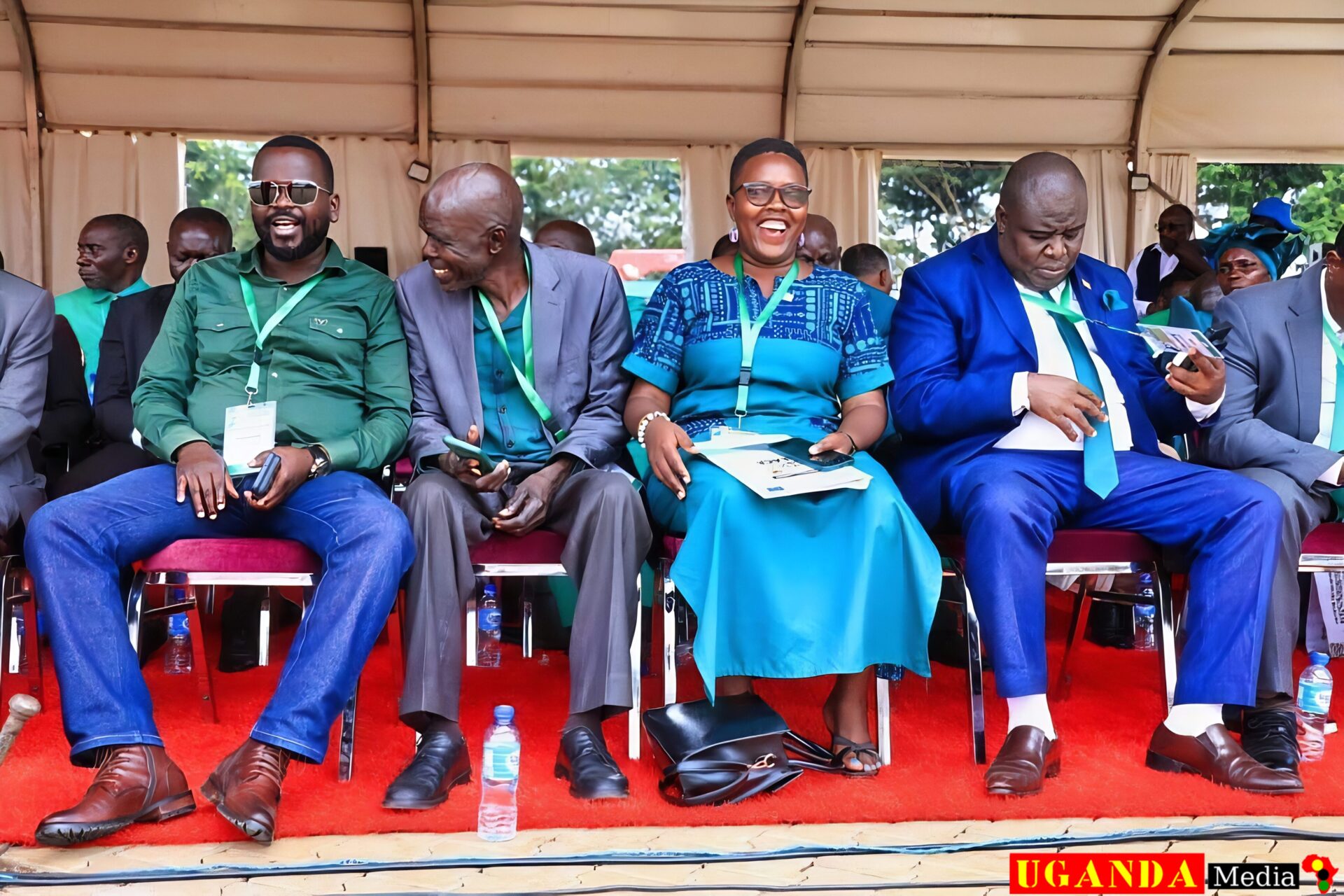 True freedom—the kind that is rooted, resilient, and real—will never be handed down from Kololo. It cannot be, for those at the summit have no intention of relinquishing the power they hold. Freedom will be built from the ground up, by us, for us. It will be woven into existence by the countless hands that choose to build instead of beg, to create instead of complain, to cooperate instead of compete.
True freedom—the kind that is rooted, resilient, and real—will never be handed down from Kololo. It cannot be, for those at the summit have no intention of relinquishing the power they hold. Freedom will be built from the ground up, by us, for us. It will be woven into existence by the countless hands that choose to build instead of beg, to create instead of complain, to cooperate instead of compete.
This leads us to the most thought-provoking question of all, one that the state desperately hopes we never ask: The question is not who will lead us, but why we need to be led at all.
Why must we be governed like children by those who are so often less wise, less moral, and less capable than the communities they claim to rule? The answer is that we do not need it. We are capable of leading ourselves.
As the adage goes, “A flock without a shepherd is not lost; it is free.” It is free to find its own pastures, to seek its own water, and to discover its own strength in the act of collective journeying.
The summit is over. The real work begins. Not in the halls of power, but in the streets, the villages, and the hearts of a people finally ready to embrace their own power and build their own future, together.

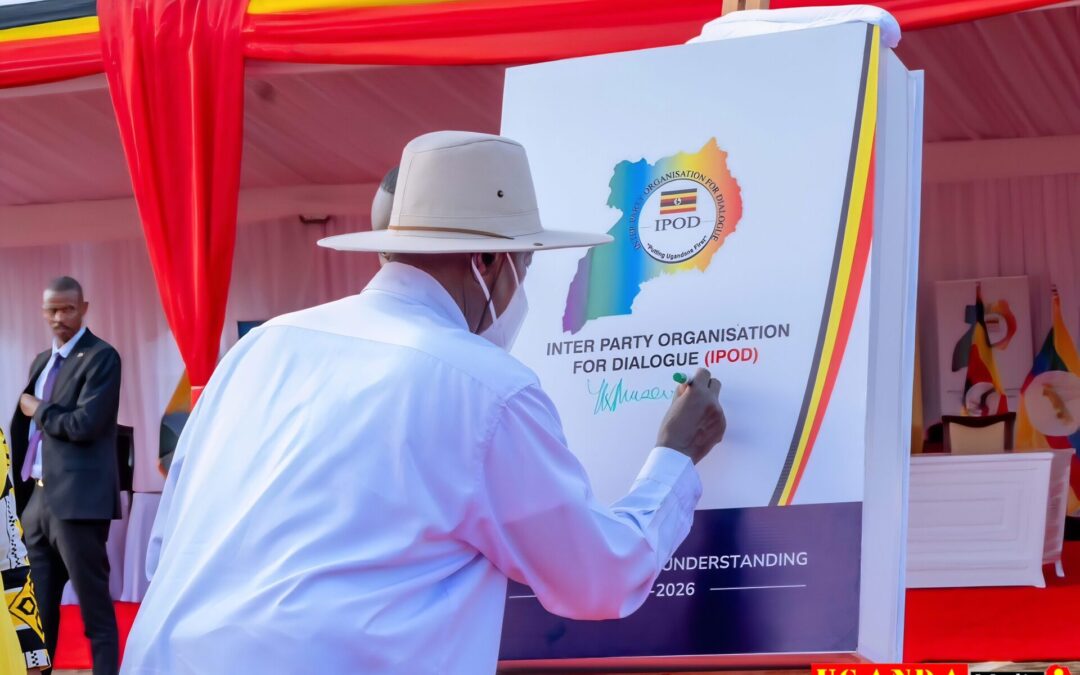
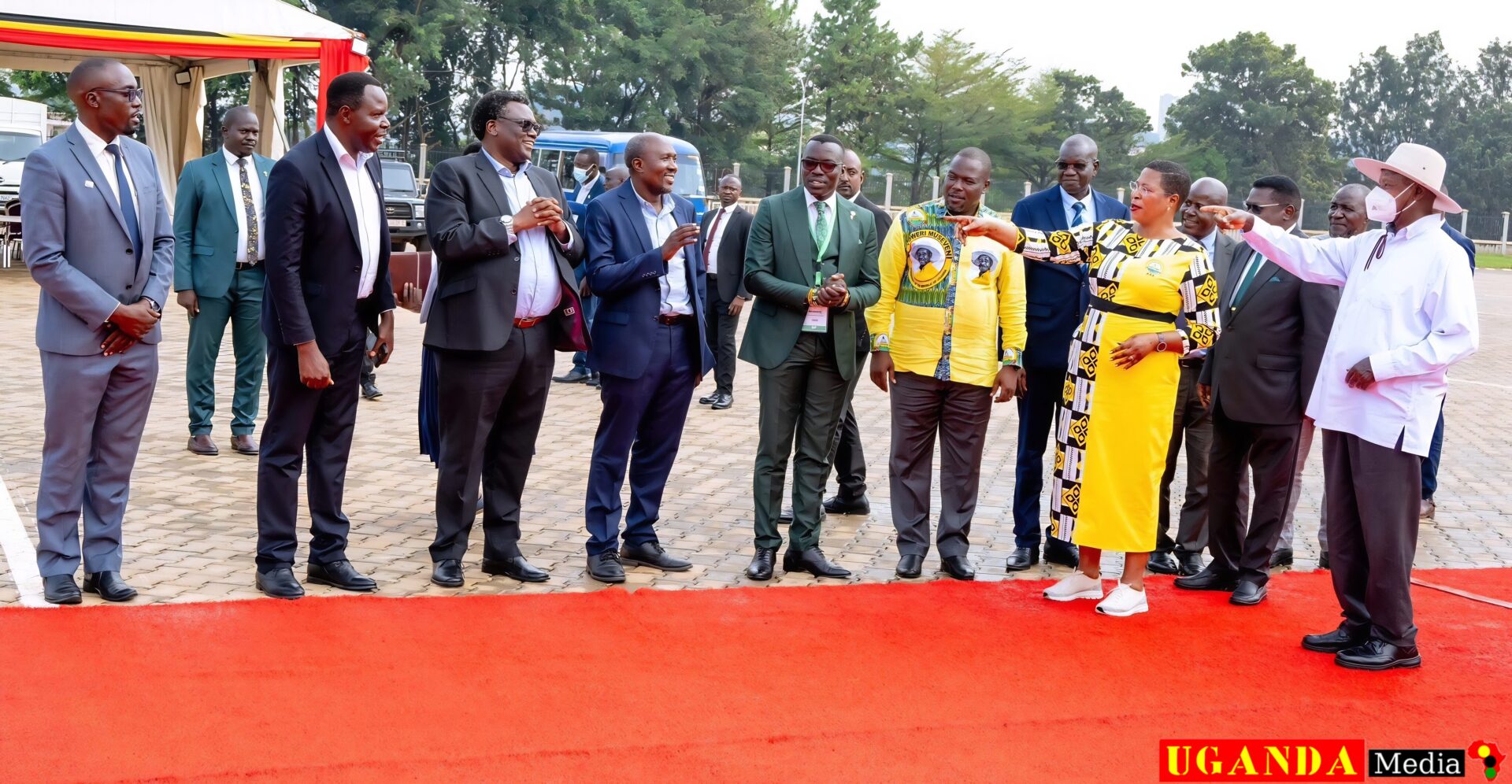 In conclusion, the IPOD summit is a masterclass in political deception. It is a bark meant to reassure, not a bite that challenges. It is designed to manufacture consent for the ruling system, not to dismantle or truly reform it. Genuine change—the kind that redistributes power from the state to the people, that prioritises community justice over court rulings for the powerful, and that builds an economy from the bottom up—will never be authored in such a venue. That kind of change has always, and will always, begin in the streets, in the villages, and in the hearts of people who see through the theatre and decide to write their own script, based on direct action, mutual aid, and a refusal to be governed by illusions.
In conclusion, the IPOD summit is a masterclass in political deception. It is a bark meant to reassure, not a bite that challenges. It is designed to manufacture consent for the ruling system, not to dismantle or truly reform it. Genuine change—the kind that redistributes power from the state to the people, that prioritises community justice over court rulings for the powerful, and that builds an economy from the bottom up—will never be authored in such a venue. That kind of change has always, and will always, begin in the streets, in the villages, and in the hearts of people who see through the theatre and decide to write their own script, based on direct action, mutual aid, and a refusal to be governed by illusions.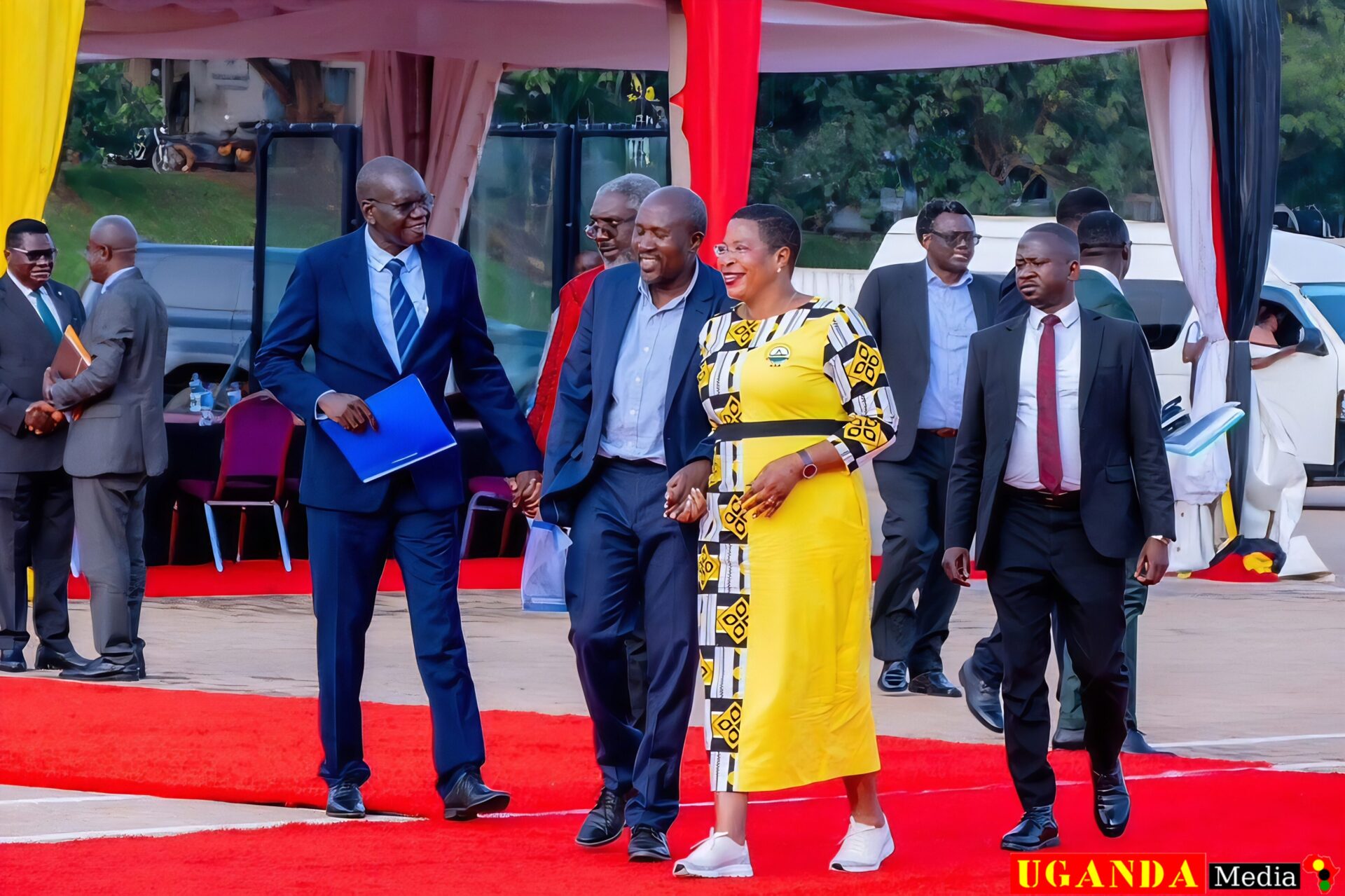 This concept of Controlled Autonomy is a sophisticated mechanism of state management, and here is a comprehensive breakdown of its function:
This concept of Controlled Autonomy is a sophisticated mechanism of state management, and here is a comprehensive breakdown of its function: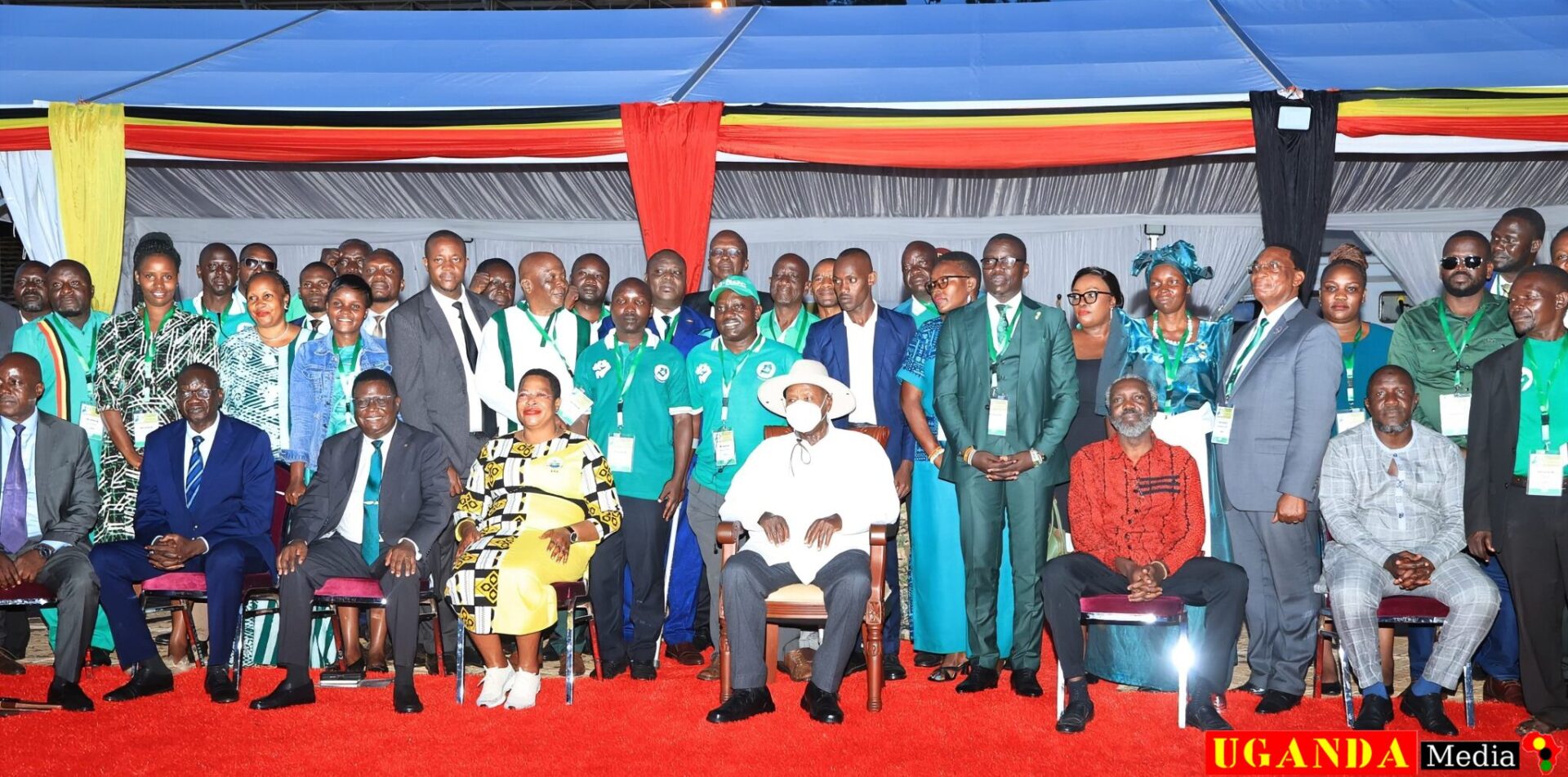 As the adage goes, “A well-fed wolf is less likely to hunt.” By providing a controlled space for dissent, the state ensures that opposition remains well-fed on symbolism and empty gestures, too comfortable and compromised to ever unleash its teeth upon the foundations of power.
As the adage goes, “A well-fed wolf is less likely to hunt.” By providing a controlled space for dissent, the state ensures that opposition remains well-fed on symbolism and empty gestures, too comfortable and compromised to ever unleash its teeth upon the foundations of power.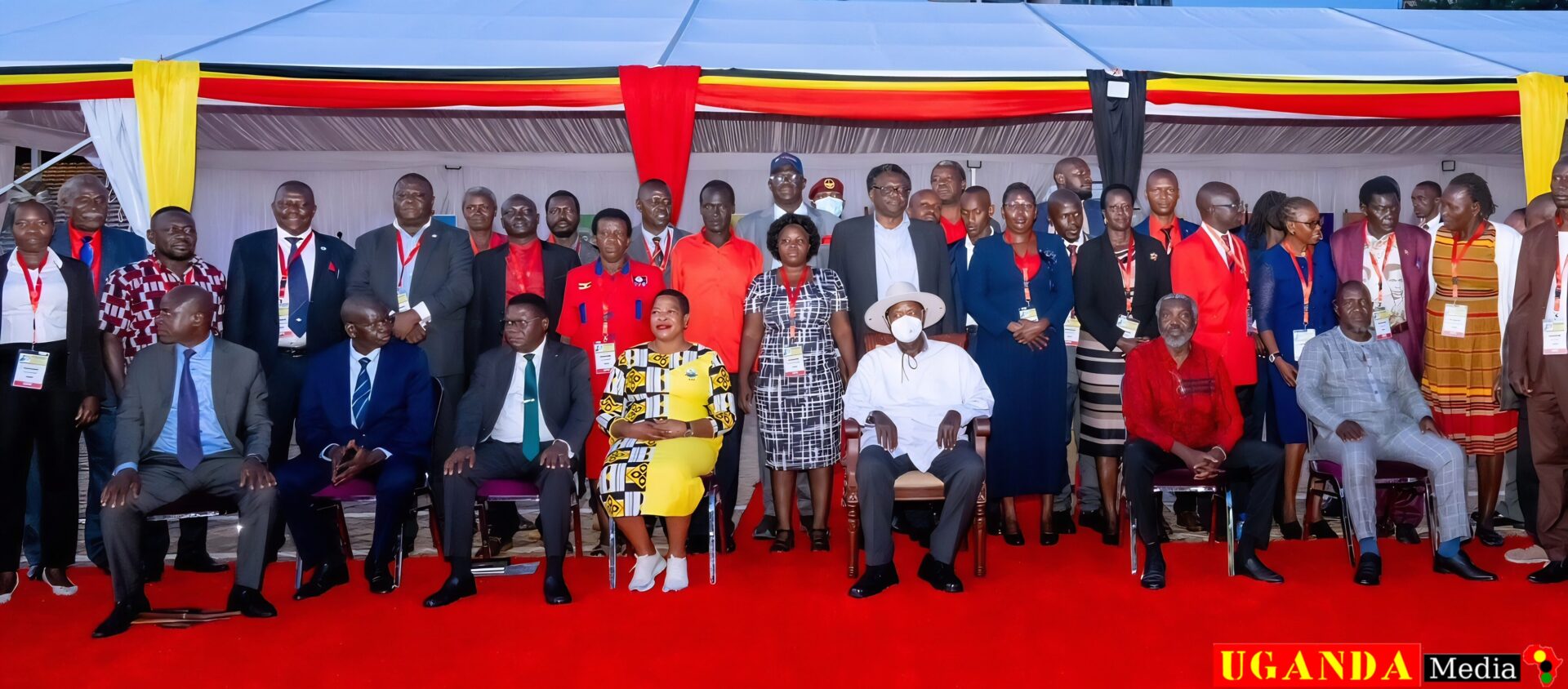 The path to a truly free Uganda does not lie in strengthening the “good” opposition. It lies in recognising them as the fancier cage that they are, and instead, investing energy in building power directly among the people—autonomous, self-sufficient, and completely outside the state’s manipulative theatre.
The path to a truly free Uganda does not lie in strengthening the “good” opposition. It lies in recognising them as the fancier cage that they are, and instead, investing energy in building power directly among the people—autonomous, self-sufficient, and completely outside the state’s manipulative theatre. It tells people to “be patient,” to “wait for the process,” and to “trust the system,” effectively funnelling their anger into a bureaucratic labyrinth with no exit. It is the political equivalent of being put on permanent hold.
It tells people to “be patient,” to “wait for the process,” and to “trust the system,” effectively funnelling their anger into a bureaucratic labyrinth with no exit. It is the political equivalent of being put on permanent hold.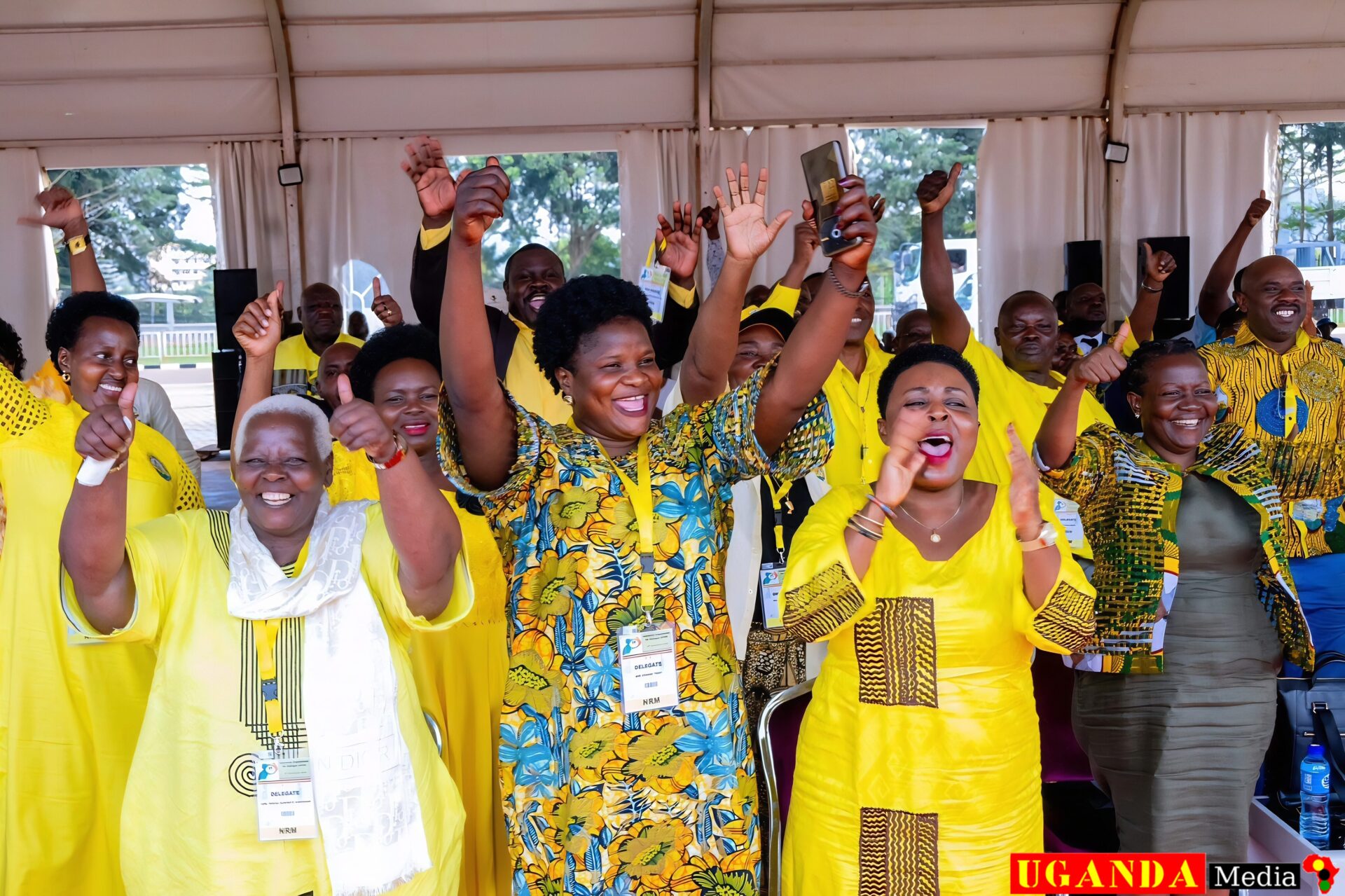 Every such appeal strengthens the cult of personality around the ruler and undermines the concept of a society of equals governed by impartial laws.
Every such appeal strengthens the cult of personality around the ruler and undermines the concept of a society of equals governed by impartial laws. The path to liberation does not run through the State House reception room. It runs through the organised power of the people themselves. True freedom is not given; it is taken.
The path to liberation does not run through the State House reception room. It runs through the organised power of the people themselves. True freedom is not given; it is taken.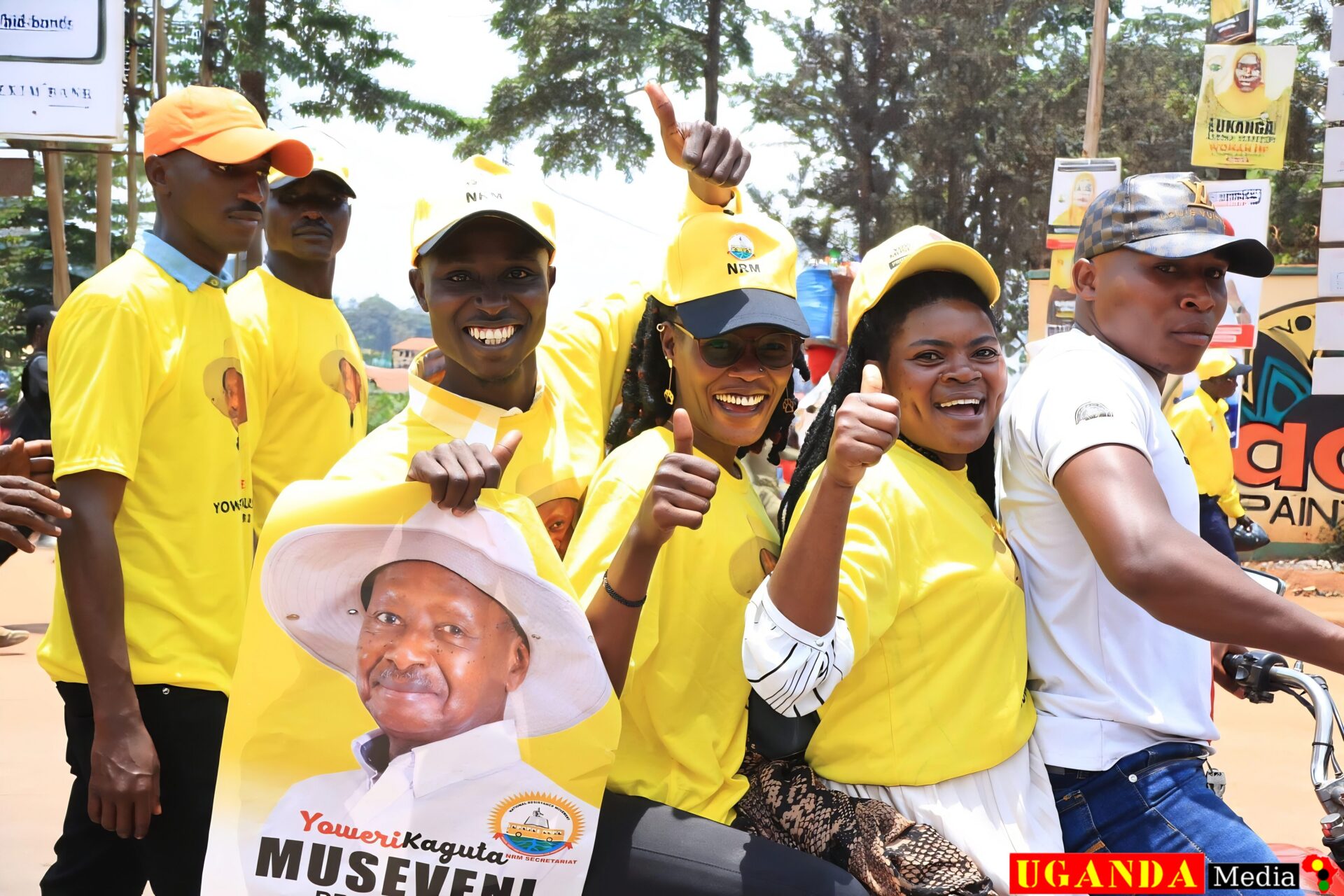 The solution, therefore, does not lie in trying to tame the state’s wolves. It lies in rendering them irrelevant through the building of popular power and community autonomy.
The solution, therefore, does not lie in trying to tame the state’s wolves. It lies in rendering them irrelevant through the building of popular power and community autonomy.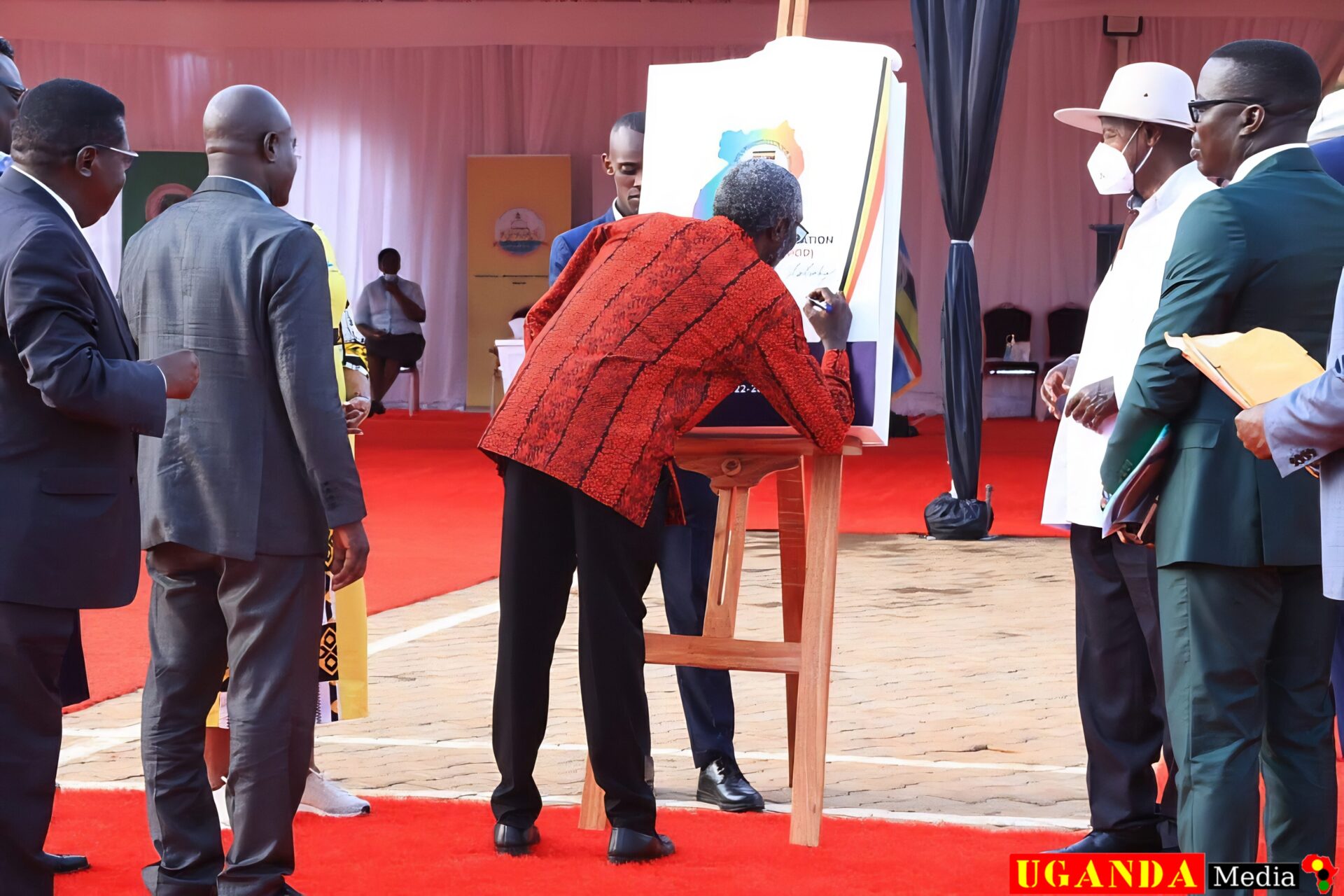 As the adage goes, “He who defines the terms of the debate, wins the argument.” By casting himself as the nation’s physician, the President wins the argument before it even begins, placing himself beyond challenge and the people beneath his care.
As the adage goes, “He who defines the terms of the debate, wins the argument.” By casting himself as the nation’s physician, the President wins the argument before it even begins, placing himself beyond challenge and the people beneath his care. This strategy of Prioritisation as Control is a sophisticated mechanism for shaping society, and its implications are vast:
This strategy of Prioritisation as Control is a sophisticated mechanism for shaping society, and its implications are vast: It offers the spectacle of change to prevent the substance of it. As the adage goes, “The more things change, the more they stay the same.” This ritual is political homeopathy—a tiny, diluted dose of opposition administered to the body politic to prevent it from developing a real immunity to the disease of entrenched power.
It offers the spectacle of change to prevent the substance of it. As the adage goes, “The more things change, the more they stay the same.” This ritual is political homeopathy—a tiny, diluted dose of opposition administered to the body politic to prevent it from developing a real immunity to the disease of entrenched power. This is not a failure of the system; it is the system functioning exactly as intended—as a protection racket for the elite. As the adage goes, “The law is a spider’s web; the small are caught, the great break through.” In Uganda, the web is meticulously woven to ensnare the poor and the powerless, while the truly powerful walk through it without a single thread snapping.
This is not a failure of the system; it is the system functioning exactly as intended—as a protection racket for the elite. As the adage goes, “The law is a spider’s web; the small are caught, the great break through.” In Uganda, the web is meticulously woven to ensnare the poor and the powerless, while the truly powerful walk through it without a single thread snapping.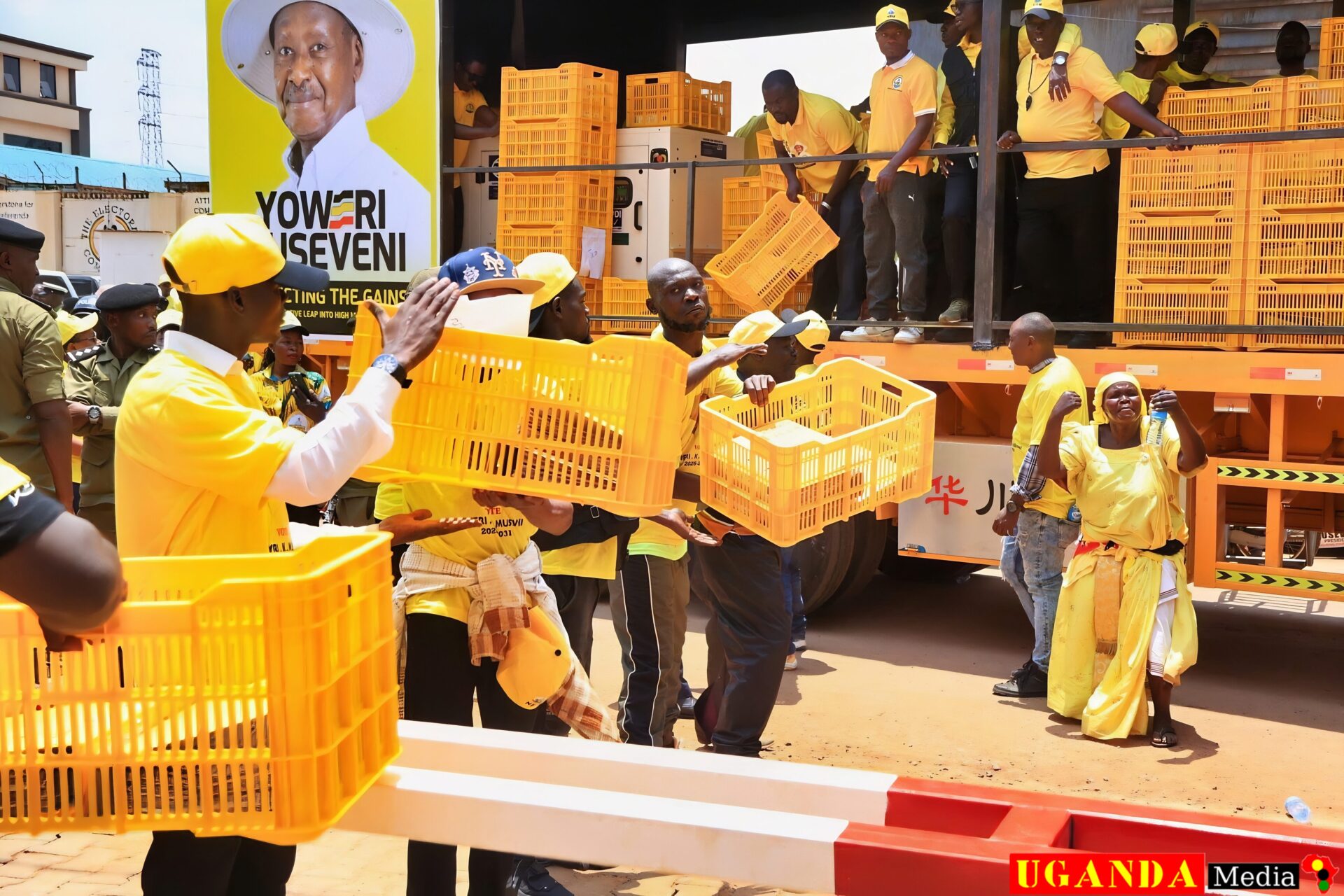 As the adage goes, “The master’s tools will never dismantle the master’s house.” You cannot use a system designed to concentrate power—like electoral politics—to create a world where power is shared by all. That new world must be built with different tools, in a different space, every day.
As the adage goes, “The master’s tools will never dismantle the master’s house.” You cannot use a system designed to concentrate power—like electoral politics—to create a world where power is shared by all. That new world must be built with different tools, in a different space, every day. It is like an arsonist hosting a summit on fire safety while continuing to pour petrol. As the adage goes, “You cannot use the same tools that broke something to fix it.” The centralised state, by its very design, is the primary source of social discord; it cannot and will not ever be the source of genuine, organic peace.
It is like an arsonist hosting a summit on fire safety while continuing to pour petrol. As the adage goes, “You cannot use the same tools that broke something to fix it.” The centralised state, by its very design, is the primary source of social discord; it cannot and will not ever be the source of genuine, organic peace.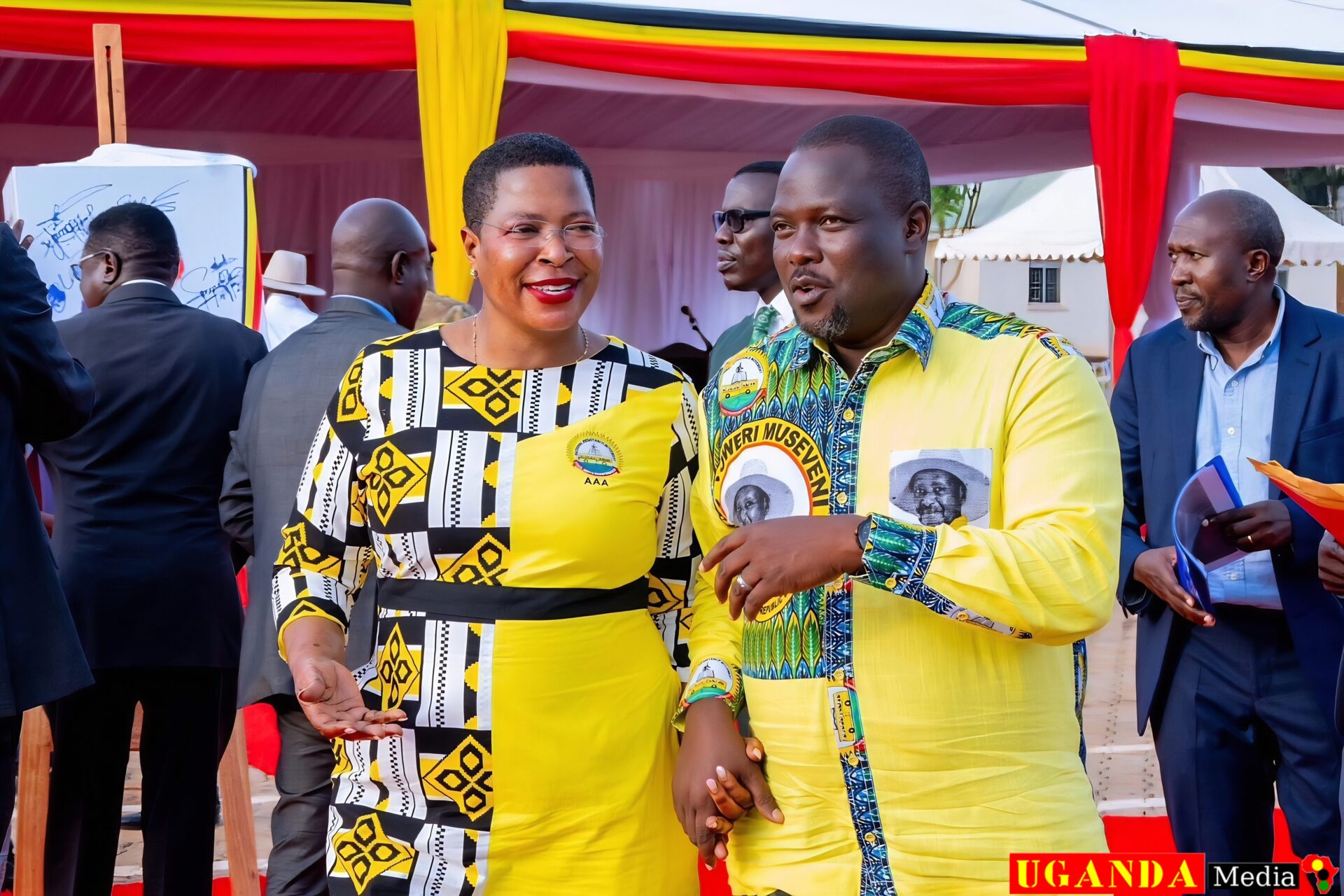 The summit is the sound of a system begging for legitimacy. The future belongs to those who are already building past it, creating a society where such summits are obsolete because the people themselves are the keepers of their own peace.
The summit is the sound of a system begging for legitimacy. The future belongs to those who are already building past it, creating a society where such summits are obsolete because the people themselves are the keepers of their own peace.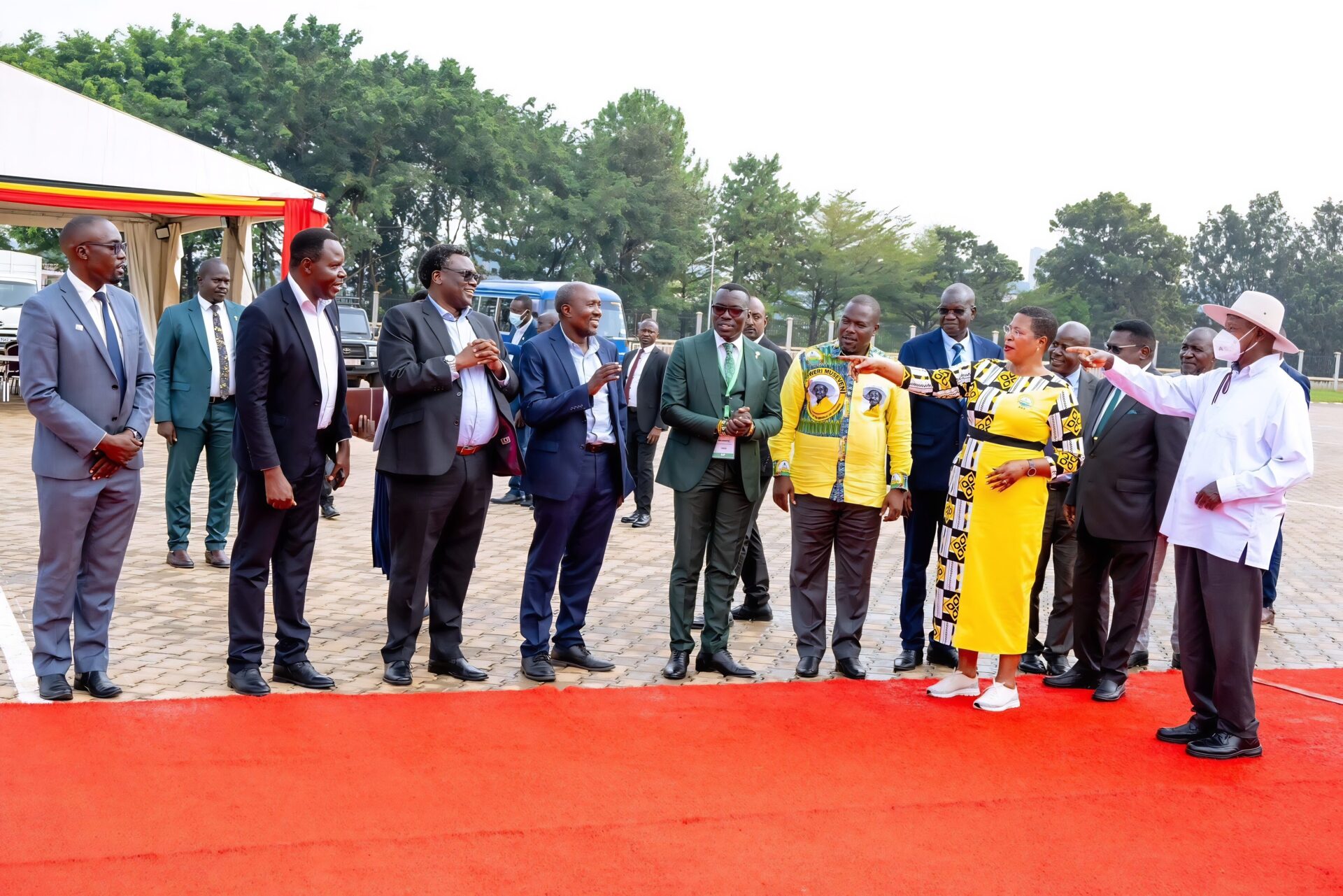 The state’s power is a shadow. It has no substance of its own; it is cast only by our collective belief in its authority and our daily compliance with its rules. Its courts, its police, and its politicians only have power because we agree to stand in their light and validate their show. The moment we step away, the moment we withdraw our consent and begin to build our own alternatives, the shadow dissolves, exposed as nothing by the bright sun of popular autonomy. As the adage goes, “Authority is like a ghost; it only exists if you believe in it.” The state is the ghost, and we are the ones who give it life by our fear and our faith.
The state’s power is a shadow. It has no substance of its own; it is cast only by our collective belief in its authority and our daily compliance with its rules. Its courts, its police, and its politicians only have power because we agree to stand in their light and validate their show. The moment we step away, the moment we withdraw our consent and begin to build our own alternatives, the shadow dissolves, exposed as nothing by the bright sun of popular autonomy. As the adage goes, “Authority is like a ghost; it only exists if you believe in it.” The state is the ghost, and we are the ones who give it life by our fear and our faith.